The Arkansas
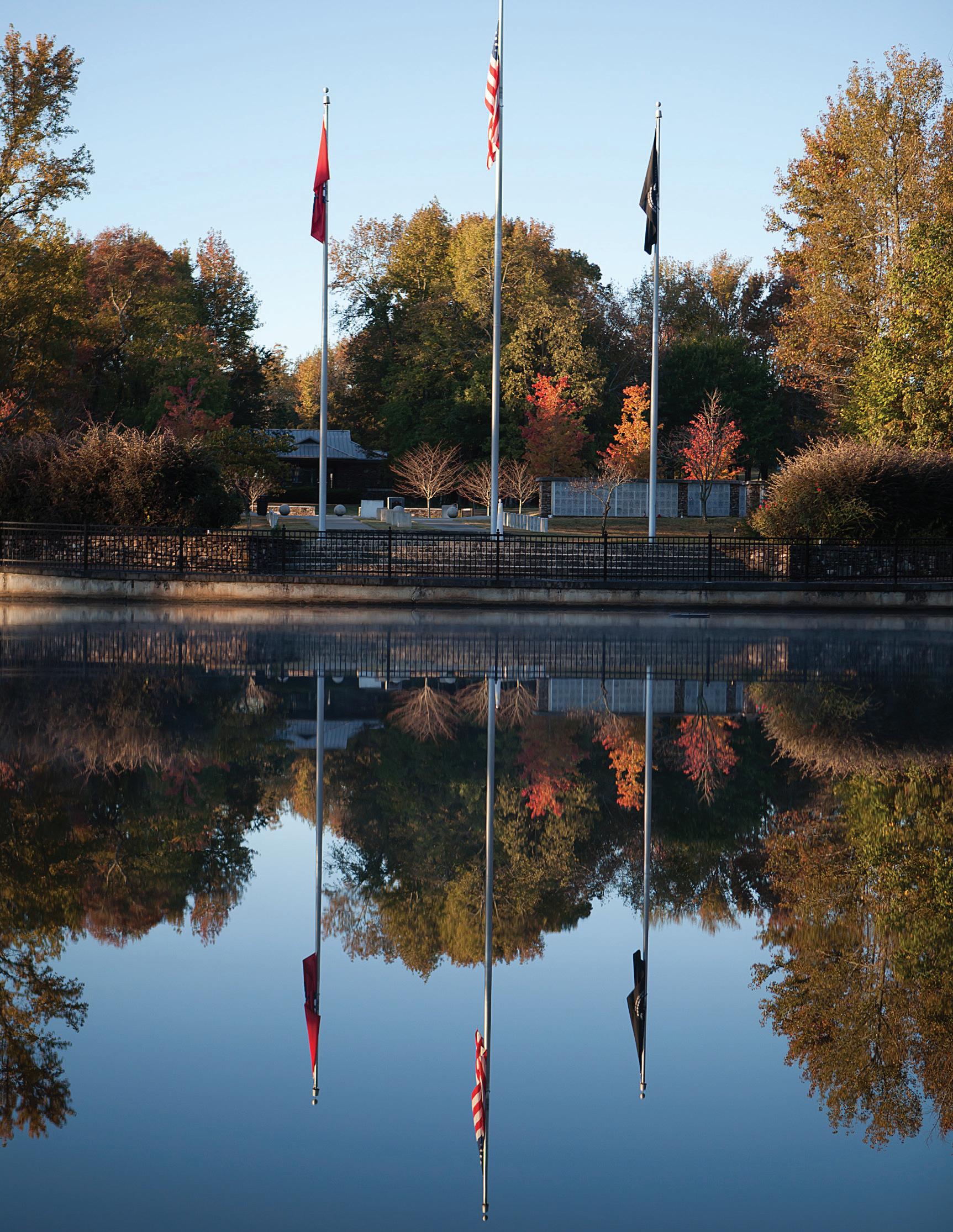
A publication of the Arkansas Bar Association
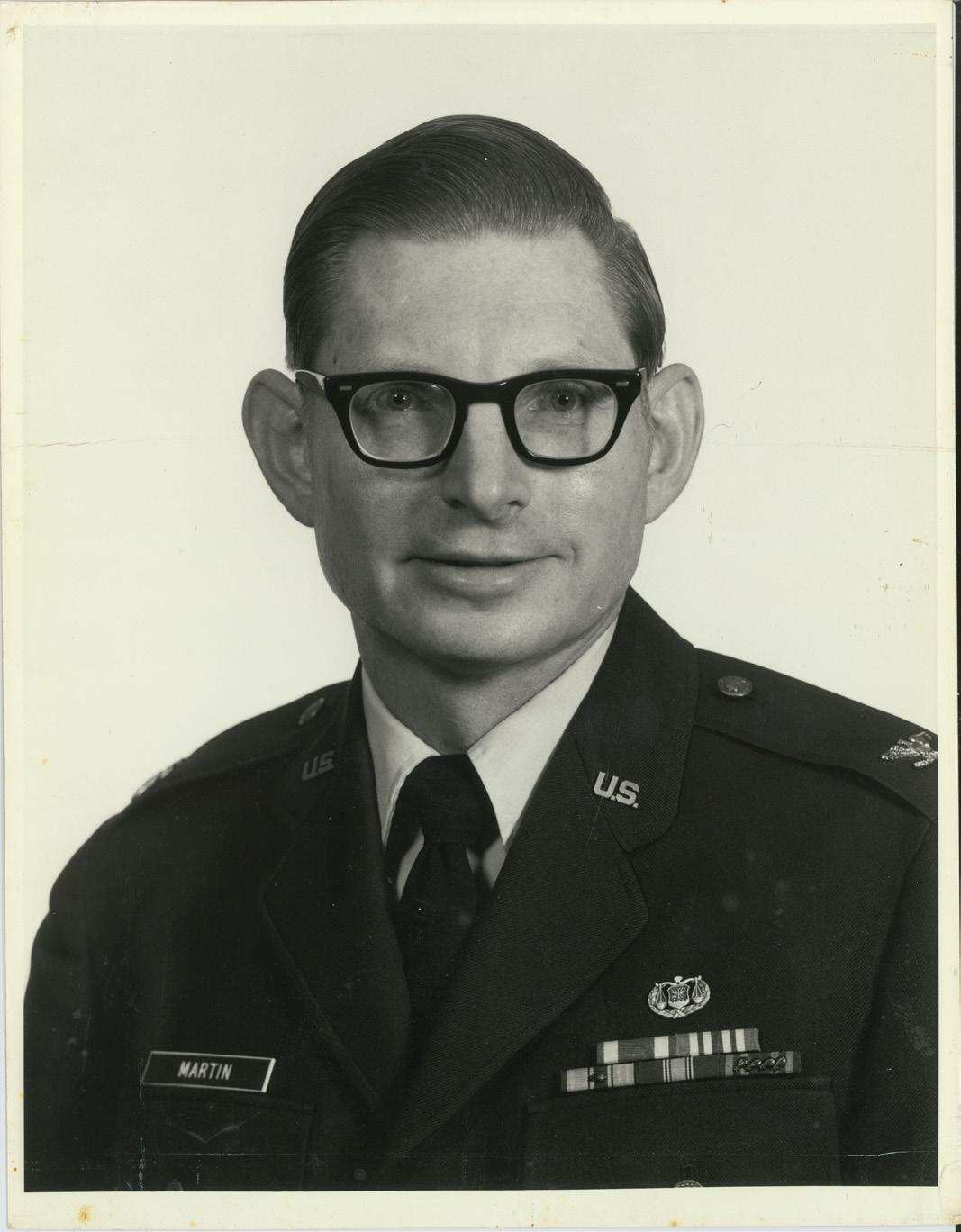
Lawyer
online at www.arkbar.com Vol. 57, No. 4, Fall 2022 Inside Honoring Those Who Served and Sacrificed to Protect Our Freedom Tribute to the late Col. William A. Martin









Get started at lawpay.com/arkbar 866-730-4140 TOTAL: $1,500.00 New Case Reference **** **** **** 9995 *** Trust Payment IOLTA Deposit YOUR FIRM L OGO HERE PAY AT TO RNEY PO WE R ED BY 22% increase in cash flow with online payments Vetted and approved by all 50 state bars, 70+ local and specialty bars, the ABA, and the ALA 62% of bills sent online are paid in 24 hours Data based on an average of firm accounts receivables increases using online billing solutions. LawPay is a registered agent of Synovus Bank, Columbus, GA., and Fifth Third Bank, N.A., Cincinnati, OH. Trusted by 50,000 law firms, LawPay is a simple, secure solution that allows you to easily accept credit and eCheck payments online, in person, or through your favorite practice management tools. Member Benefit Provider I love LawPay! I’m not sure why I waited so long to get it set up. – Law Firm in Ohio +
PUBLISHER
Arkansas Bar Association
Phone: (501) 375-4606 Fax: (501) 421-0732 www.arkbar.com
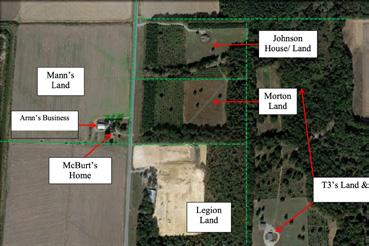
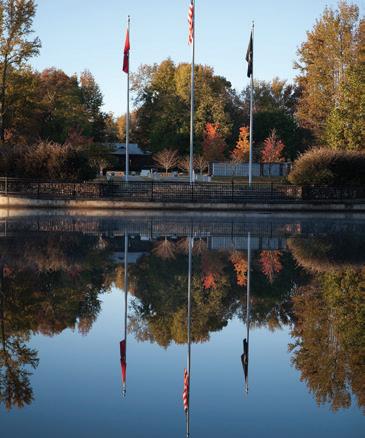
EDITOR
Anna K. Hubbard
EXECUTIVE DIRECTOR
Karen K. Hutchins
PROOFREADER
Cathy Underwood
EDITORIAL BOARD
Luke K. Burton
Haley M. Heath
Ashley Welch Hudson
Anton Leo Janik, Jr.
Jim L. Julian

Kimberly D. Logue
Drake Mann
Gordon S. Rather, Jr. William A. Waddell, Jr., Chair
Brett D. Watson
David H. Williams
Nicole M. Winters
OFFICERS
President
Joe F. Kolb President-Elect
Margaret Dobson Immediate Past President
Bob Estes
Secretary Glen Hoggard Treasurer
Brant Perkins Parliamentarian
Brent Eubanks
YLS Chair
William J. Ogles
BAR ASSOCIATION STAFF
Executive Director
Karen K. Hutchins
Executive Administrative Assistant
Michele Glasgow

Director of Government Relations
Jay K. Robbins

Director of Education & Operations
Kristen Frye
Director of Finance & Administration

Staci Clark
Membership Administrator
Janet K. Marshall Office & Data Administrator
Cynthia Barnes Publications Director
Anna Hubbard
Professional Development Content Coordinator
Royce V. LoBianco
The Arkansas Lawyer (USPS 546-040) is published quarterly by the Arkansas Bar Association. Periodicals postage paid at Little Rock, Arkansas. POSTMASTER: send address changes to The Arkansas Lawyer, 2224 Cottondale Lane, Little Rock, Arkansas 72202. Subscription price to nonmembers of the Arkansas Bar Association $35.00 per year. Any opinion expressed herein is that of the author, and not necessarily that of the Arkansas Bar Association or The Arkansas Lawyer. Contributions to The Arkansas Lawyer are welcome and should be sent to Anna Hubbard, Editor, ahubbard@arkbar.com. All inquiries regarding advertising should be sent to Editor, The Arkansas Lawyer, at the above address. Copyright 2022, Arkansas Bar Association. All rights reserved.
features
Brett D. Watson
Vol. 57, No. 4
Lawyer The Arkansas
Contents Continued on Page 2 10 Legislative Advocacy: Protecting the Profession
14 More than Words: Tailoring Your
Brief to Today's
Reader
18 Final Orders, Non-Final Orders and Final(ish) Orders By
24 Firmly Lodging the Appellate Record: How to Avoid Common Pitfalls in Appellate Rule 5(b) By
and
30 Members Who Have Served in the Military 33 Tribute to Col. William "Bill" Aubert Martin 1931-2022 Cover Photo of the Arkansas State Veterans Cemetery in North Little Rock by Mike Pirnique Members who have served in the military
By Aaron L. Squyres
Appellate
Judicial
By
Andrew M. Taylor
Joshua C. Ashley
Tim Cullen
Vol. 57, No. 4
Lawyer The Arkansas
in this issue
ArkBar News 4
Arkansas Access to Justice 34
Arkansas Bar Foundation 36
In Memoriam 37
Disciplinary Actions 39
columns
President’s Report 7 Joe F. Kolb
Young Lawyers Section Report 9 William J. Ogles
District A1: Geoff Hamby, Jason B. Hendren, Timothy R. Scott, Kesha Zaffino District A2-A3: Matthew Benson, Evelyn E. Brooks, Jason M. Hatfield, Michelle Rene' Jaskolski, Sarah C. Jewell, Kristin L. Pawlik, George M. Rozzell, Russell B. Winburn
District A4: Kelsey K. Bardwell, Craig L. Cook, Brinkley B. Cook-Campbell, Dusti Standridge
District B : Michael S. Bingham, Randall L. Bynum, Thomas M. Carpenter, Tim J. Cullen, Bob Edwards, Steven P. Harrelson, Michael M. Harrison, Anton L. Janik, Jr., Jamie H. Jones, Victoria Leigh, B. Chase Mangiapane, William C. Mann III, Skye Martin, Stefan McBride, Kathleen M. McDonald, J. Cliff McKinney II, Jeremy M. McNabb, Molly M. McNulty, David S. Mitchell, Jr., Meredith S. Moore, John Ogles, Casey Rockwell, Emily M. Runyon, Carter C. Stein, Jessica Virden Mallett, Danyelle J. Walker, Patrick D. Wilson, George R. Wise
District C5: Joe A. Denton, John Tyler Henderson, Todd C. Watson, William Z. White District C6: Bryce Cook, Paul N. Ford, Paul D. Waddell, Ryan M. Wilson
District C7: Kandice A. Bell, Laurie Bridewell, Sterling T. Chaney, Taylor A. King Delegate District C8: Carol C. Dalby, Amy Freedman, Connie L. Grace, Wm. Blake Montgomery
At Large Members: Joseph F. Kolb, Margaret Dobson, Bob Estes, Glen Hoggard, Brant Perkins, William J. Ogles
Ex-officio Members: Brent Eubanks, Judge Hamilton H. Singleton, Judge Chaney W. Taylor, Edward T. Oglesby, Dean Cynthia Nance, Dean Theresa Beiner, Denise Reid Hoggard, Eddie H. Walker, Jr., Christopher Hussein, Karen K. Hutchins, Jay K. Robbins
2 The Arkansas Lawyer www.arkbar.com
Board of Trustees
The
The ABA Retirement Funds Program (“Program”) is working with plan sponsors to address many top concerns. Fiduciary protection, revenue transparency, and governance play an important role in how your firm’s plan is structured. As the retirement landscape continues to change you need a provider that strives to maximize the value of your plan, improve retirement outcomes, and help you manage your plan expenses. We have been doing just that for nearly 60 years.
The ABA Retirement Funds Program is an employer-sponsored 401(k) plan designed specifically to address the retirement needs of the legal community. The Program is structured to provide affordable pricing whether you are a sole practitioner or a large corporate firm.



The ABA Retirement Funds Program is available through the Arkansas Bar Association as a member benefit. Please read the Program Annual Disclosure Document (April 2022) carefully before investing. This Disclosure Document contains important information about the Program and investment options. For email inquiries, contact us at: joinus@ abaretirement.com.
Registered representative of and securities offered through Voya Financial Partners, LLC (member SIPC). Voya Financial Partners is a member of the Voya family of companies (“Voya”). Voya, the ABA Retirement Funds, and the Arkansas Bar Association are separate, unaffiliated entities, and not responsible for one another’s products and services.
CN1474756_0123
it Time
Change Your
Provider?
Is
to
401(k)
ABA Retirement Funds Program has just made that decision much easier.
Built by LAWYERS, Powered by PROS®
Now is the time. Contact an ABA Retirement Funds Program Regional Representative to set up a complimentary consultation and plan comparison. Call today and experience the difference. 800.826.8901 abaretirement.com joinus@ abaretirement.com
Class of 1997 A Call to Leadership
Congratulations to Members Celebrating Their 25th Year of Practice
Allison R. Allred
Elizabeth Ann Andreoli
John K. Baker
Rinda Baker
Scott C. Bles
Glenn E. Borkowski
Misty W. Borkowski
Vicki Bronson
Judge Waymond M. Brown
Katherine Blackmon Carroll
Nancy Cartwright
Stuart A. Cearley
Thomas B. Chilton
John David Cloud
Michael Edward Crawley
Tim J. Cullen
J. Cotten Cunningham
Deborah S. Denton
Grant C. DeProw
Amy M. Driver
Stephen Gregory Fallon
Michael G. Feehan
Andrew V. Francis
Lori L. Freno
Buck C. Gibson
Connie L. Grace
James F. Gramling, Jr.
Judge Phillip C. Green
Mae Haney Grennan
Timothy S. Groustra
Gary Lee Gunderman
Mieka M. Hatcher
Jason M. Hatfield
Cindy L. Hawkins
Jason B. Hendren
Mark Murphey Henry
Curtis W. Hitt
Mark W. Hodge
Jeb H. Joyce
Joe Harvey Kimmel III
Euel W. Kinsey
Traci H. LaCerra
Michael A. Lilly
John D. Maddox II
Monzer J. Mansour
Patrick C. McDaniel
Courtney McLarty
Joyce Renea McMillon
Bruce A. McMullen
Karen Baim Reagler
Daniel J. Reber
Joseph D. Reece
John C. Riedel
Sherri L. Robinson
Lott Rolfe IV
A. Powell Sanders
Michael E. Sanders
Jerrold John Scholtens
John M. Scott
Susan M. Skinner
Thomas Kent Smith
Tim Snively
David W. Sterling
John P. Talbot
JaNan Arnold Thomas
Camille Thompson
Robert F. Thompson III
Christopher L. Travis
Judge Casey R. Tucker
Andy L. Turner
R. Britt Virden
Jason H. Wales
Elisa M. White
Daniel K. Wooten
Dan C. Young
January 31st
Deadline for submission of completed nomination forms to the Arkansas Bar Association’s Secretary
Districts Total No. Seats
Election Cycle Timeline
February 15th Deadline for mailing of ballots in contested races
March 18th Deadline for receipt of signed ballots
No. of Available Seats
County(ies) within Each District
A1 4 2 Benton A2, A3 8 2 Washington
A4 4 1 Boone, Carroll, Crawford, Franklin, Johnson, Logan, Madison, Newton, Sebastian B9-15 28 10 Pulaski
C5 4 1 Baxter, Cleburne, Conway, Faulkner, Fulton, Independence, Izard, Jackson, Lawrence, Marion, Perry, Pope, Randolph, Searcy, Sharp, Stone, Van Buren, White, Yell
C6 4 1 Clay, Craighead, Crittenden, Cross, Greene, Lee, Mississippi, Monroe, Poinsett, Prairie, St. Francis, Woodruff
C7 4 2 Arkansas, Ashley, Bradley, Calhoun, Chicot, Clark, Cleveland, Columbia, Dallas, Desha, Drew, Grant, Jefferson, Lincoln, Lonoke, Ouachita, Phillips, Union
C8 4 1
Total Trustees 60 20
Garland, Hempstead, Hot Spring, Howard, Lafayette, Little River, Miller, Montgomery, Nevada, Pike, Polk, Saline, Scott, Sevier
The next President-Elect Designee will come from Bar District A, which encompasses the following counties: Benton, Boone, Carroll, Crawford, Franklin, Johnson, Logan, Madison, Newton, Sebastian and Washington. Please contact Karen Hutchins at 501-801-5663 for nominating petitions for the office of President-Elect.
Nominations are being collected for the Office of Secretary and American Bar Association Delegate positions. Contact Karen Hutchins at 501-801-5663 for information on these positions.
4 The Arkansas Lawyer www.arkbar.com ArkBar News
Oyez! Oyez!
APPOINTMENTS AND ELECTIONS
U.S. Circuit Judge Lavenski Smith, 8th U.S. Circuit Court of Appeals, has been appointed by U.S. Supreme Court Chief Justice John Roberts to serve as the newest chair of the Judicial Conference’s executive committee.
WORD ABOUT TOWN
Rosalind M. Mouser has joined Ramsay, Bridgforth, Robinson and Raley LLP as Of Counsel. Hall Booth Smith, P.C. announced that April Cotton has joined the firm as associate in its office in Little Rock. Alex Denker has joined the firm Hosto & Buchan, PLLC as associate attorney. Quattlebaum, Grooms & Tull PLLC announced that Dalton B. Swindell has joined the firm as an associate. Gill Ragon Owen, P.A. announced that Logan J. Timmis joined the firm as an associate. Matthews, Campbell, Rhoads, McClure & Thompson, P.A. in Rogers announced that Mallory A. Sanders and Mason Reynolds have joined the firm.
ArkBar Welcomes New Staff Member
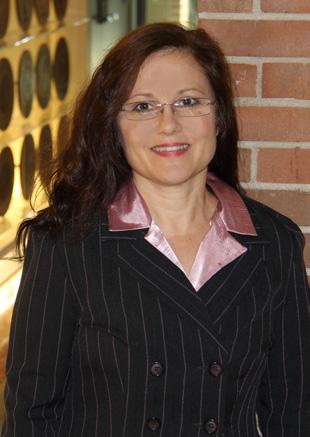

Staci Clark joins us as the association’s Certified Public Accountant. Staci is a graduate of the University of Central Arkansas with a degree in Business Administration majoring in Accounting. Following graduation, she joined the firm of Ernst & Young. As she and her husband, Tim, began their family, they moved back to Bee Branch to focus on raising their two sons, Alex and Austin. She has worked as the accountant for the AR Dairy Cooperative Association, First Baptist Church, Victory Television Network and most recently Frazee, Fox & Dodge, Ltd. Staci enjoys spending time with family and friends, ATV trail riding, and taking lake and beach trips.


“We are pleased to have Staci join our team,” Executive Director Karen K. Hutchins said. “Her extensive experience as a Certified Public Accountant will be a great asset to the Association. Staci is quickly learning the association’s upgraded financial software and reviewing our financial processes.”
2023 Mock Trial Competition Call for Volunteers
its 2023 competition year. In addition to our normal call for volunteers at our regional competitions and state championship, we will also need the legal community’s help as we host the 2023 National High School Mock Trial Championship in May.

"Every year, our students are excited about taking on the role of attorneys and witnesses and digging into each year’s case,” said Anthony McMullen, chair of the Mock Trial Committee. “I can think of no other activity in the state of Arkansas that engages students on this level on knowledge of the legal system and the judicial process. Students continue to participate, in part, because of the positive interactions with members of our legal community.” To this end, we seek judges and lawyers to serve as scoring and presiding judges during the competition. No mock trial experience is necessary, as we provide a brief orientation before the round.
Regional competitions are scheduled to be held in Fayetteville, Jonesboro, and Pine Bluff on Saturday, February 11, 2023, and the State Championship will be held in Little Rock on Saturday, March 4, 2023. To volunteer, go to www.arkbar. com/ARMockTrial or contact McMullen at AnthonyLMcMullen@gmail.com. The Mock Trial Committee appreciates your support.
Vol. 57 No. 4/Fall 2022 The Arkansas Lawyer 5
Staci Clark
The Arkansas Bar Assocation Mock Trial Committee is seeking volunteers for
State of Arkansas v. Carolyn Armistad
Submit your Oyez! news to ahubbard@arkbar.com. Look for the Oyez feature with photos in ArkBar's Monthly Electronic Member Newsletter. Visit arkbar.com /for-attorneys/publications/member-newsletter.
Arkansas Bar Association Mock Trial Competition
This bar year, the Association celebrates 125 years of service to the legal profession and our community. Throughout this special anniversary year we will be looking back over our history and celebrating the moments, activities, and people who helped shape this Association.







The Association kicked off its 125th year celebration with the Inaugural Legal Hall of Fame on September 15. The event was held at the Arkansas Governor’s Mansion Great Hall with a reception and dinner. Gov. Asa Hutchinson welcomed the attendees, Colette Honorable served as the emcee and President Clinton provided a special video. The Legal Hall of Fame recognized a diverse group of men and women who have made an extraordinary contribution to the law, society, the administration of justice and legal education. Honorees for the inaugural class are: Philip S. Anderson, Sen. David Pryor, Secretary Rodney Slater, Justice Annabelle Tuck, Judge Richard S. Arnold, Scipio Africanus Jones, Gov. Sidney Sanders McMath, and The Little Rock Nine. Thank you to the following sponsors: Presenting Sponsor, Rose Law Firm; Founders Circle sponsors, Friday Eldredge & Clark, Mitchell Williams, Taylor King and Wright Lindsey Jennings; Supporting Partners, McMath Woods and Squire Patton Boggs; AV/ Production sponsor, CWP Productions; Education Partner, Gill Ragon Owen; and our Friendship Sponsors Reed Smith and LawPay.
See photos from the event by scanning the code.
6 The Arkansas Lawyer www.arkbar.com
PRESIDENT'S REPORT
Off and Running— Building a Better Association
In my last report, I outlined a vision of how to move the association forward—a roadmap to build a better, stronger, more vibrant, more sustainable association.
I laid out a plan to renew the association’s focus on four key areas: creating membership value, improving two-way communication between the association and the lawyers it serves, encouraging engagement at all levels—from nonmembers all the way up to the board of trustees, and integrating and unifying the many parts and programs of the association so that the association makes efficient use of limited resources.
I am happy to report that, as a whole, we’re all in—the Board of Trustees, the Executive Committee, the task forces and committees charged with developing and implementing the details, and our wonderful staff—we are all working toward that brighter future.
In this report, I want to give you some examples of how our renewed focus on communication and engagement is playing out.
We have reimagined and reconfigured our Board of Trustees meetings. We have stepped away from Zoom and moved our meetings out into and around the state. And we have made them more engaging for our trustees AND our members.
We held our first board meeting of the year in Fayetteville in August. It was a great success. The trustees had in-depth generative discussions related to member benefits and member value and an extended discussion related to the use and maintenance of the Bar Center. More on that to come.
But what was just as exciting was, under our new format, on the Thursday evening before our Friday meeting, the board cohosted a “Local Social” in partnership with local bar organizations. These socials are designed to create opportunities for trustees
Joe F. Kolb is the President of the Arkansas Bar Association. Kolb is the principal member of the law firm j. k o l b in Little Rock.

and local attorneys to interact, exchange information and ideas, and engage one another—in two-way communication—so attorneys can make their voices heard and trustees can be sure they understand what is important to members.
Our first “Local Social” was co-hosted with the Washington County and Benton County bar associations. More than 150 trustees, local attorneys, and law students enjoyed a wonderful evening of casual conversation and fellowship.
I want to thank trustee and Washington County Bar President Michelle Jaskolski and YLS District A Representative and Benton County Bar President Sam Mason for their support and hard work in planning the event, as well as Sarah Jewell, the association’s Chief Engagement Officer.
District B will host our December board meeting in Little Rock. We have reached out to several local bar organizations for our “Local Social.” In addition, Executive Committee District B Representative Jamie Jones and trustee Jessica Mallet are working on a special project for the trustees while they are in town that will involve the trustees reaching out to and engaging graduating law students.
As they say—“But that’s not all!” I am also pleased to report that the Member Value Task Force, under the leadership of Jamie Jones, is hard at work to determine what value the association can and should provide its members.
As an initial step, the task force has planned a series of “Coffee Chats” to be held around the state. “Coffee Chats” are open and informal gatherings at which local attorneys can share with association leaders their thoughts about what they need and want from the association over a cup of coffee and a pastry.
The first “Coffee Chat” was held in Jonesboro on November 3rd. I would like to thank Past President Tom Womack, and all of the attorneys of Womack Phelps Puryear Mayfield & McNeil, P.A. for hosting. I also want to specifically acknowledge trustee Ryan Wilson and YLS at-large representative Sara Gay for their part in staging the event.
Two other “Coffee Chats” are scheduled in November, one in Rogers and one in Little Rock. Plans are also being made for gatherings in Fort Smith and Texarkana. If you would like to host or just attend a chat in your neck of the woods, reach out to Jamie Jones at jjones@fridayfirm.com.
These chats are precursors to more formal outreach and discussions to be led by the Member Value Task Force. The task force is in the process of identifying and interviewing consultants to help design additional outreach to members and prospective members. The goal of these efforts is to determine what Arkansas lawyers need and want from the association to alleviate issues or “pain points” in their practices.
The task force anticipates it will host several focus groups and commission one or more surveys over the next six months to gather the data it needs to make recommendations to the board of trustees about the programming and products our members want and need.
These are just a few examples of how the association is renewing its focus on communication and engagement.
Through these efforts, we can assure that the association provides real value to Arkansas attorneys. And in so doing, we can and we will build a better, stronger, more vibrant, more sustainable association—one that truly lives up to its mission “to support attorneys” and “advance the practice of law.” ■
Vol. 57 No. 4/Fall 2022 The Arkansas Lawyer 7
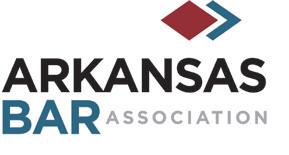



8 The Arkansas Lawyer www.arkbar.com UPCOMING CLE ArkBar's Mid Year 2.0 Probate & Trust Law Elder Law Tax Law Aloft Hotel, Little Rock Wed-Fri 8-10 February 61st Annual Natural Resources Conference Oaklawn Racing Casino Resort Hot Springs Wed-Fri 1-3 March Construction Law Conference Oaklawn Racing Casino Resort Hot Springs Friday 21 April 26th Annual Debtor Creditor Law Conference Junior League of Little Rock Thur-Fri 27-28 April 26th Annual Environmental Law Conference Sterling Bank, Fayetteville Wed-Fri 3-5 May 125th Annual Meeting Joint Meeting with the Arkansas Judicial Council Hot Springs Convention Center Wed-Fri 14-16 June On-Demands Always Available at https://mx.arkbar.com/CLE-Events/Events-List On-Demand CLE Library View the new ArkBar Online Calendar at www.arkbar.com/ cle--events/ Labor & Employment Law Conference Arkansas Bar Center, Little Rock Friday 10 March
YLS Fall Update

Fall is upon us! As the weather has cooled down (the author wrote this while it was still hot outside, so hopefully this is true), the Young Lawyers Section has stayed red hot. During the dog days of summer, former YLS president Chris Hussein and I traveled to Chicago to attend the American Bar Association Annual Meeting, as Arkansas Delegates. We were able to attend workshops, listen to world-class speakers, and meet and learn from other Bar Associations across the nation. We were also fortunate to take in the sights and sounds of Wrigley Field.
Back in Arkansas, Chair-Elect Caroline Kelley and I traveled to both law schools to speak to incoming 1L’s during their first week of classes. While congratulations were in order for these new students’ achievements thus far, we explained that the journey is just beginning and you can’t do it alone. We received tremendous feedback from these events and were able to get many new law students involved in the Bar Association. This aligns with our previously announced goal this year to start Arkansas Bar Association Chapters at each law school.

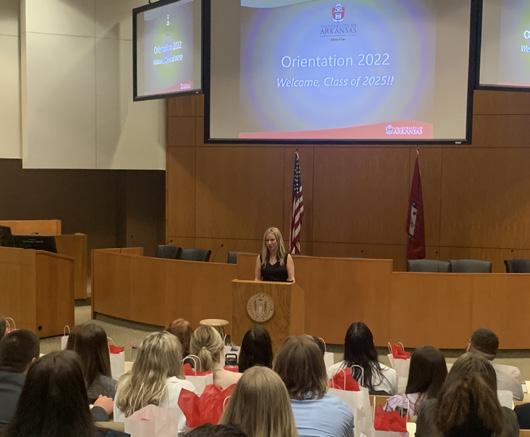
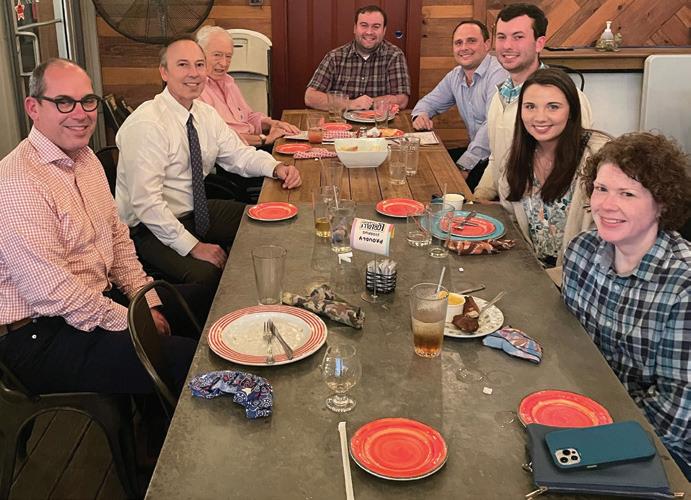

The month of November has been a busy month for our section. We have both social events and service projects scheduled. On November 3, YLS sponsored a happy hour event in Magnolia. This event
was located at Mulekick and was a good time for lawyers in the area as well as prospective law students.
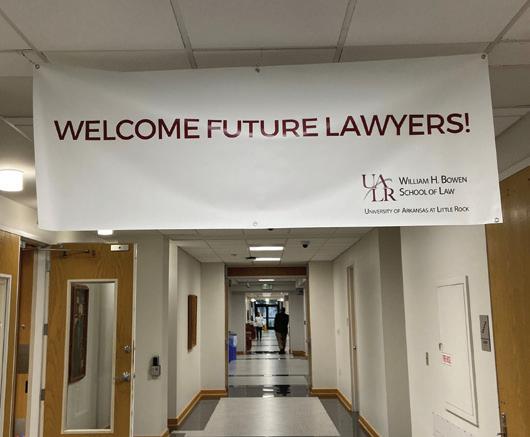
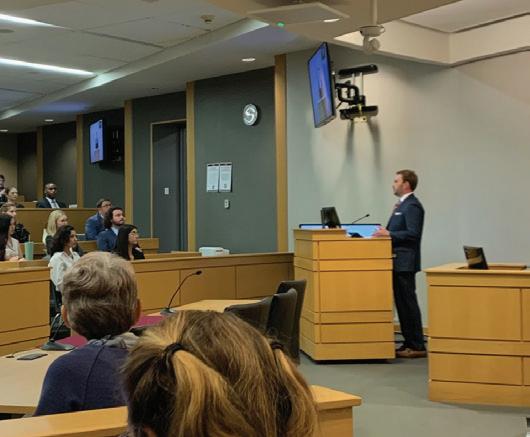
The following week, YLS partnered with Arkansas Access to Justice to sponsor a free legal answers clinic. This fun event had potential for a large impact to an underserved community. Prior to the event, low-income Arkansans could log in and submit their legal questions or concerns to an online portal. Then, on November 10, YLS attorneys logged in online and spent an hour or so responding to as many questions as we could. Of course, libations were served at the Arkansas Bar Center immediately following the event for the volunteer attorneys.
While all these events have been taking place, another service project that YLS is excited to announce is the update of the Arkansas Bar Associations’ 18 and Life to Go: A Legal Handbook for Young Arkansans. Because our section is made up of individuals who most closely resemble this target audience, it made sense for us to be in charge of this project. The goal of this book is to provide particularly relevant information to high school students to help them make decisions that could impact the rest of their lives. The information is presented in a way that young adults can understand and apply to their situation and hopefully allow
William J. Ogles is the Chair of the Young Lawyers Section. He is an attorney at Wright, Lindsey & Jennings LLP

them to make wise, informed choices in the years to come. After this guidebook has been updated, YLS attorneys plan to travel to select high schools around the state and provide a brief presentation.
YLS has had a great start to
this year and we are excited as we look forward to all of our upcoming projects and events. We hope to see everyone at the Mid-Year Meeting in February!
You can reach Will Ogles at Wogles@wlj.com and 501-3710808.
Vol. 57 No. 4/Fall 2022 The Arkansas Lawyer 9
YOUNG LAWYERS SECTION REPORT
Young Lawyers Section
@ArkBar
ArkBar Young Lawyers Section
YLS
By Aaron L. Squyres
Legislative Advocacy
Protecting the Profession
Aaron L. Squyres is a past chair and current member of ArkBar's Legislation Committee. He is a Shareholder and Managing Partner of Litigation and Bankruptcy at The Wilson Law Firm in Little Rock.


The Arkansas Bar Association works full time to monitor legislation impacting the administration of justice and the legal profession. In addition to providing a full-time lobbyist who represents the Association before the General Assembly, the Association offers legislative resources to members, including a Legislation Committee that proactively reviews every bill filed during a legislative session, as well as a Jurisprudence & Law Reform Committee which reviews and recommends legislation for the Association’s legislative package.
“Legislative advocacy is an important part of the Association’s mission,” said Association President Joe Kolb. “It has real impact on our members and provides real value. And it’s important that our members understand the process the Association follows to determine when it is appropriate for the Association to take a position on legislation and what that position will be. We want members to know how to participate in the process and we want them to feel comfortable that the final decision to support, oppose, or remain neutral on a measure is made for the right reasons and is in the best interest of the Association and its members.”
Legislation Committee
The Legislation Committee exists as a Standing Committee of the Association. The committee consists of the following 11 voting members: the President of the Association, the President-Elect, the Chair of the Jurisprudence and Law Reform Committee, and the Chair of the Legislation Committee; one member appointed by the President for a three-year term; one member continuing to serve in the second year of a three-year term who was appointed by the immediate Past President; one member continuing to serve in the third year of a three-year term who was appointed by the President preceding the immediate Past President; one member appointed by the President for a one-year term; and one member from each of the State Bar Districts who is elected by the voting members of the Board of Trustees from that District. The President-Elect Designee and a member of the Young Lawyers Section also serve as non-voting members.
10 The Arkansas Lawyer www.arkbar.com
The Legislation Committee’s responsibilities are to support the Association's lobbyist in promoting the enactment of bills included in the Association’s legislative package; support the position of the Association on other legislation pending before the Arkansas General Assembly; and consider and decide the position of the Association on legislation under consideration or expected to be considered by the legislature, its interim committees, or state agencies, proposed initiated acts, and rules and regulations proposed and under consideration by the regulatory agencies of the state.
The bylaws of the Association provide that the Legislation Committee may not take a position on any legislation or any agency rule or regulation unless the legislation or rule would have a direct effect on the practice of law or a significant impact on the administration of justice.
The Legislation Committee reviews every bill filed during a legislative session. With the exception of the President, each voting member of the Committee is assigned a number from 0-9. Every week during a legislative session, each reviewing member reviews every bill, resolution, and amendment ending in their number and reports to the full committee each Friday.
The first step for the committee is to make an initial determination whether the legislation would have a direct effect on the practice of law or a significant impact on the administration of justice. If it does, the committee then decides whether it is appropriate for the Association to take a position on the measure. “That’s a complicated calculus,” said Kolb. “Beyond just considering whether a bill is ‘good or bad’ law, the committee has to put a bunch of other factors on the scale to decide whether it tips in favor of taking a position or not—like how much influence the Association has on a particular issue, how taking a position may impact the bar’s legislative package or its position on other measures, and what other organizations support or oppose the legislation. For sure, it’s a political process. And there are rarely easy decisions. But on whole, I think history has shown that the Committee usually finds the best path forward for the Association. And its decision becomes the official
position of the Association.”
However, all decisions of the Legislative Committee are subject to review and override by the Board of Trustees.
Legislation Committee Chair George Rozzell works tirelessly to make sure that the interest of the membership is a priority. “As a committee of practicing attorneys, it can be difficult to discern whether to weigh in on proposed legislation which might affect a client’s interest as opposed to focusing first on that which affects the practice of law,” Rozzell said. “Our committee prides itself that our primary concern is the interest of our membership as a whole. We strive to improve the practice of law above all else.” Rozzell is a partner at Miller, Butler, Schneider, Pawlik and Rozzell in Fayetteville.
Some of the most consequential legislation that the Legislation Committee considers are amendments to the Arkansas Constitution. These amendments may be controversial, and members of the Association may have very strong opinions in support of or in opposition to the amendment. As Chair Rozzell so eloquently stated, the Legislation Committee always strives to place the interests of the membership of the Association as a whole at the forefront of its deliberations. In the event the Legislation Committee takes a position in support of or in opposition to a proposed Amendment to the Arkansas Constitution or the United States Constitution, the Board of Trustees may override the position of the Legislation Committee by a majority vote of the Board of Trustees and may elect to take a position in support or in opposition to the proposed amendment upon the vote of three-fourths of the Board of Trustees.
While the members of the Legislation Committee invariably have different practices, the members are not experts on all areas of the law. As such, the Committee will routinely ask for comments on proposed legislation from the relevant Sections. It is critically important to the Committee to receive feedback from the experts so it can make informed decisions. The Committee is grateful for the past participation of the Sections and encourages all members of the Sections to provide comment when asked in the future.
Jurisprudence & Law Reform Committee
The Jurisprudence and Law Reform Committee (“JPLR”) also exists as a Standing Committee of the Association. It consists of 17 to 18 members.
Broadly speaking, “jurisprudence” is defined as the study, knowledge, or science of law. The JPLR’s responsibilities are to consider and report concerning all matters of jurisprudence and procedure—from reforms of substantive law to improvement in practice, procedure, and court administration. The primary function of JPLR is to review and recommend legislation for inclusion in the Association’s legislative package.
Members, Sections, and other Committees of the Association are encouraged to participate in the JPLR’s process. Any proposed legislation submitted to JPLR is normally required to be submitted in draft bill form and address issues concerning matters of jurisprudence or procedure. The Association’s bylaws charge JPLR with reviewing these proposed bills and reporting their findings and recommendations to the Board of Trustees for action.
Before a bill may become a part of the Association’s legislative package, it must receive an affirmative vote of two-thirds of the members of the Board of Trustees.
JPLR Chair David Bingham encourages members to participate in the process. “The Jurisprudence and Law Reform Committee is an avenue for Association members to improve the laws and procedures under which they practice. It is common for a practicing lawyer to identify an area of substantive law or procedure that could benefit from an improvement that does not substantially alter the underlying policy behind the law or procedure. Rather than hope for the legislature to identify the improvement on its own, the attorney can submit a draft bill to the Committee. Assuming the Committee and the Board of Trustees agree with the proposal, that lawyer could find his or her draft bill included in the Association’s legislative package and actively lobbied for by the Association in the next legislative session.” Bingham is counsel at Mitchell Williams Law Firm in Little Rock. ■
2022 The Arkansas Lawyer 11
Vol. 57 No. 4/Fall


12 The Arkansas Lawyer www.arkbar.com C M Y CM MY CY CMY K arkbar.com/ legislativeresources/home The Arkansas Bar Association is your advocate at the State Capitol. The Arkansas Bar Association’s Legislation Committee will meet each Friday during the session that begins on January 9, 2023. Once the session begins, watch for weekly updates in ArkBar’s e-bulletin. Visit the Legislative Resources website at www.arkbar.com/ legislativeresources/home for information on ArkBar’s legislative advocacy/government relations program.


Vol. 57 No. 4/Fall 2022 The Arkansas Lawyer 13 FOR YOUR COURT REPORTING AND TRANSCRIPTION NEEDS Cris M. Brasuell, CCR Certified Court Reporter for the State of Arkansas 501-554-6699 • BReporting@gmail.com BRASUELL REPORTING, LLC
More Than Words: Tailoring Your Appellate Brief to Today's Judicial Reader
By Brett D. Watson
Brett D. Watson is an Arkansas appellate attorney who has handled more than 250 appeals in state and federal courts.

Suppose you have a powerful exhibit that makes your case to the jurors. Seeing the exhibit, they are sure to rule for you. Do you let your witness describe the exhibit but never show it to the jury? No, you display the exhibit for the jurors to see. You put it on a screen. You zoom in. You publish the exhibit to the jurors so they can touch it. You don’t just tell the jurors your case; you show them your case.
Why should your appellate briefs be any different? Yes, appellate judges are lawyers. They are trained in words and will decide the law, not necessarily the facts. More than other citizens, they read and interpret words, not evidence. But judges also surf the internet, scroll through Facebook, and check Instagram. And like everybody else, technology is rewiring their brains.1 The digital age has shortened their attention spans. They skim and scroll more, analyze detail less. Distractions are nonstop: the latest Razorback article, available at a click, might win out over your long, tedious brief.
Despite the rise of technology, your best bet is still clarity, simplicity, organization, and logic. In some appeals, there is nothing to argue about but words. What does this statute mean? What did that witness say? Was this burden met? But in many appeals, attorneys can supplement and strengthen their argument with photographs, diagrams, charts, and other visual tools that are more understandable and more memorable to the modern judicial reader. By the examples in this article, we hope you will go beyond your usual writing style and consider how you might be able to persuade the court with more than words.
Property Cases
Appeals in real-property cases are fertile ground for making your point with photographs and maps. Judges might not understand what is at stake in a property dispute through words alone. Sure, the judge can always turn or click to an exhibit in the record, but make it easy by inserting the exhibit into your brief. Here are some examples.
Cities were fighting over the meaning of a statute that allowed annexation of land “contiguous” to a municipality. The pro-annexation city wanted to show that property at the city’s border went to the middle of a public street, thus making property in the city contiguous with property outside the city. The city did this by using a plat and literally highlighting the fact that the property boundaries went to the middle of the street.2
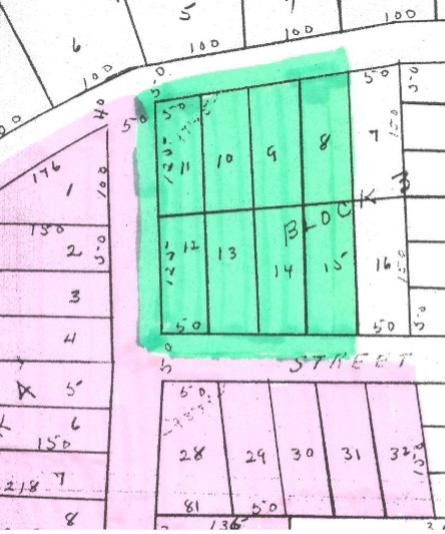
14 The Arkansas Lawyer www.arkbar.com
In a case about the scope of an easement that involved a confusing maze of nowvacated city streets, a property owner showed the Arkansas Court of Appeals the property boundaries by highlighting the property and using arrows (already on the exhibit from the circuit court) to show the easement’s path.3
Videos and Pictures
Photos and videos are helpful in an array of cases. Here are two examples. In the first, a motorcycle and car collided at an intersection. The briefs could have included a lengthy, detailed description of what the intersection looked like. But the record included videos showing what the intersection would have looked like coming from each direction. So the appellee included still shots from the videos to help the appellate court understand each driver’s perspective as they approached the intersection.6


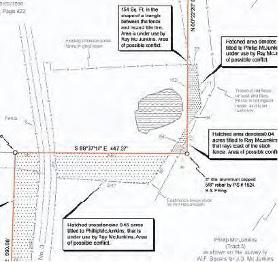
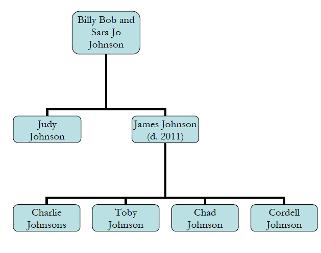
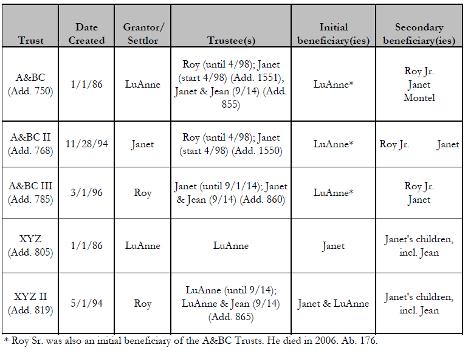



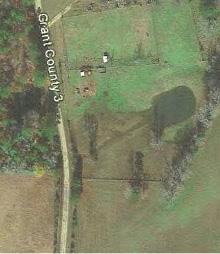
may be involved. Here are two examples of how parties simplified the facts for the court. The first is a family tree with eight family members who all had the same last name. The tree allowed the court to quickly identify the parties and their place in the family (names have been changed):8
In a case that involved whether a landowner’s use of its land was a nuisance, the appellant used a satellite map to show the layout (landowner names have been changed).4
And where a landowner wanted to show the appellate court that a fence had been in long use around his property, he cut and pasted from three exhibits spanning 22 years showing the fence along the southern and southeast edge of the property.5
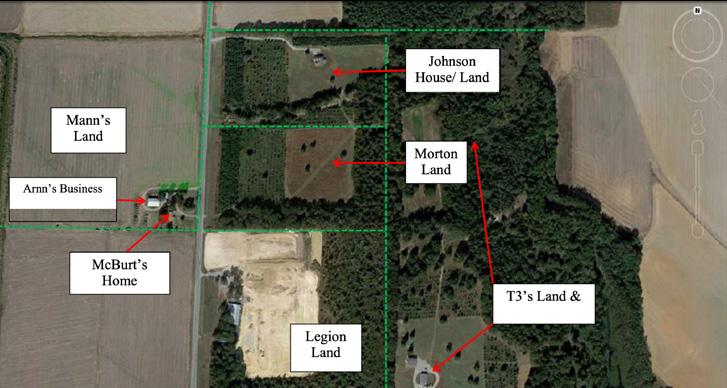
Where the circuit court had found an easement through a ditch and across a road on the appellant’s property, the appellee used a shot from a video that was in evidence to show how the road and ditch ran adjacent to each other. Maybe the appellate court would have gotten the thumb drive and watched the video, maybe not.7
And in a case with five family trusts created on different dates by different family members, some with the same last name, the parties simplified things for the Arkansas Supreme Court by showing the trusts, dates of creation, grantor or settlor, trustees, beneficiaries, and where to find it all in the record (names have been changed).9
Cases with many names, parties, or family members
Family fights can be confusing. Parties often have the same last name. Multiple properties or family-owned legal entities
Other Examples
Sometimes making it simple can be nothing more than creating a small chart distinguishing your facts from cases your opponent relies on, for example, this one where a defendant convicted of negligent homicide showed the Arkansas Supreme Court why the facts in his case (the last row on the chart) were different from other cases where the negligent-homicide convictions had been affirmed.10 (See Case Comparison Chart on next page).
Maybe evidence is deep in the record, complicated, or unclear. You could do as the mother did in this dispute over child custody to show how the children’s tardies skyrocketed when they began living with the father, data that was embedded in school records that the appellate court might not have uncovered (names have been changed).11
Vol. 57 No. 4/Fall 2022 The Arkansas Lawyer 15
(1994 photo)
Tilley's View (eastbound) (2015 photo)
(2016 survey)
Caulley’s View (westbound)
ignored sections of an officer’s application that showed he was not qualified because of eye problems.13
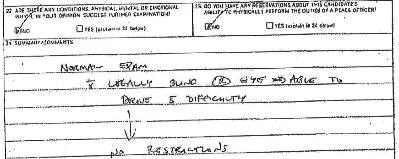
is my hope that the ideas and examples in this article will prompt you to think about how you can more effectively communicate to appellate judges why they should rule for your client.
Endnotes:
In a child-support fight, the circuit court had found the husband’s annual income to be $39,600, but the tax returns told a different story. The wife could have told the appellate court this same information in paragraph form. She instead provided three concise, convenient charts to show his income and the fact that he paid more in federal income tax every year than the circuit court had found he made (name changed).12
NEIL YOUNT’S INCOME (Depreciation Not Deducted)
Year Amount Cite
2012 $294,601 Add. 126 2013 $335,165 Add. 141 2014 $269,627 Add. 156
NEIL YOUNT’S INCOME (Depreciation Deducted)
Year Amount Cite
2012 $178,821 Add. 126
2013 $232,615 Add. 141
2014 $196,151 Add. 156
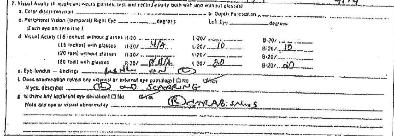

FEDERAL INCOME TAX NEIL YOUNT PAID
Year Amount Cite
2012 $42,665 Add. 123
2013 $62,176 Add. 138
20124 $48,657 Add. 154
Documents and Exhibits
Although an appellate court can click on and go to a record page cited in your brief, sometimes you want to emphasize part of a page. In those instances, you might want to cut and paste from the document into your brief, as this appellee did in a case in which the federal district court had denied the defendants’ qualified-immunity claim when evidence showed that the chief of police had

Or this excerpt from a police officer’s diagram in the motorcycle-automobile accident case mentioned above. The motorcyclist included the excerpt to show the appellate court that he was occupying the outside lane and traveling straight rather than switching lanes, a point of contention at trial.14
1. See Robert Dubose, Legal Writing for the Rewired Brain: Persuading Readers in a Paperless World (2010).
2. City of Rockport v. City of Malvern, 2012 Ark. 445, 424 S.W.3d 870.
3. Carroll v. Shelton, 2018 Ark. App. 181, 547 S.W.3d 94.
4. 3 Rivers Logistics, Inc. v. Brown-Wright Post No. 158, 2018 Ark. 91, 548 S.W.3d 137.
5. McJunkins v. McJunkins, 2018 Ark. App. 293, 550 S.W.3d 895.
6. Tilley v. Sparrow, 2014 Ark. App. 23, 431 S.W.3d 392.
7. Five Forks Hunting Club, LLC v. Nixon Family P’ship, 2019 Ark. App. 371, 584 S.W.3d 685.
8. Burks v. Liberty Bank, 2014 Ark. App. 672.
9. Dawson v. Stoner-Sellers, 2019 Ark. 410, 591 S.W.3d 299.
10. Gill v. State, 2015 Ark. 421, 474 S.W.3d 77.
11. Hortelano v. Hortelano, 2017 Ark. App. 98, 513 S.W.3d 890.
Conclusion
Although we live in a digital age, the fundamentals of a strong appellate brief remain the same: clarity, simplicity, organization, and logic. Part of that is adjusting to how readers read and comprehend information. To that end, it
Case
Utley v. State, 366 Ark. 514, 237 S.W.3d 27 (2006)
Hunter v. State, 341 Ark. 665, 19 S.W.3d 607 (2000)
12. Johnson v. Young, 2017 Ark. App. 132, 515 S.W.3d 159.
13. Thompson v. Murray, 800 F.3d 979 (8th Cir. 2015).
14. Tilley v. Sparrow, 2014 Ark. App. 23, 431 S.W.3d 392. ■
Case Comparison Chart
Known Circumstances
Driving a large commercial garbage truck on a bridge on the wrong side of the road; struck a vehicle and then continued in the wrong lane for another 150 feet without braking, swerving, or doing anything else to stop or change lanes before hitting another vehicle
Passing a logging truck on a double-yellow line up a hill; admitted he was bent on passing and could not see what was coming because of mist and spray from the logging truck; collided head-on with vehicle coming over the hill
Driving 76 mph on a state highway; refused to heed police officers’ pursuit; failed to negotiate a turn at excessive speed; collided with another vehicle; continued fleeing Gill v. State Stopped, looked both ways, saw no cars.
Lowe v. State, 264 Ark. 205, 570 S.W.2d 253 (1978)
16 The Arkansas Lawyer www.arkbar.com



PRESERVE THE JURY TRIAL You need both people. For complex cases, associate the experience and expertise of The Law
Williams. Our areas of strength and knowledge • Stryker hip replacement recall • Commercial vehicle accidents ‘Almost’ doesn’t cut it. 211 S. Spring Street Second Floor Little Rock, AR 72201 (501) 372-0038 david@dhwlaw.net dhwilliamslawfirm.com
Office of David H.
David H. Williams
Final Orders, Non-Final Orders and Final(ish) Orders
By Andrew M. Taylor
Andrew M. Taylor is a partner at the Taylor & Taylor Law Firm, P.A. in Little Rock.

Introduction
Almost every week, the appellate courts in Arkansas dismiss several appeals because the order in the case was not a final, appealable order. If you appeal from an order that is not final, the outcome is typically not fatal to your case; the appellate court will usually dismiss the case without prejudice so that the circuit court can enter a final order. But this still means that your appeal will take longer to complete and cost more money.
In this article, we’ll cover some of the basics of how to distinguish between a final order and a non-final order. But you should be aware that there is a line of cases holding that sometimes you must file a notice of appeal from an order even if it is not a final order. This means it is not only important to be able to distinguish between a final order and a non-final order, but also between non-final orders and the category of orders that is close enough to being final that you must file a notice of appeal. At our firm, we call these “finalish” orders.
Overview of the Final Order Rule
We start with a look at Rule 2 of the Arkansas Rules of Appellate Procedure— Civil, which tells us which orders are appealable.1 The most obvious type of appealable order is a “final judgment or decree entered by the circuit court.”2 In order to meet this definition, the order must “adjudicate all of the claims as to all of the parties, whether presented as claims, counterclaims, crossclaims, or third-party claims.”3
In addition to final judgments or decrees, there are about a dozen categories of non-final orders that are appealable.4 A detailed analysis of these orders is outside the scope of this article, but if the circuit court enters an order that you disagree with, you should review Rule 2 to determine whether you must file a notice of appeal prior to entry of the final order.5
There are two types of orders mentioned in Rule 2 that bear further analysis. First, Rule 2 allows an immediate appeal from “final orders awarding custody.”6 That rule will be discussed in further detail in this article. Second, Rule 2 allows an immediate appeal from an order that contains a Rule 54(b) certificate.7 Under Rule 54(b) of the Arkansas Rules of Civil Procedure, a circuit court may enter an order that is final as to only some claims or parties.8 To be effective, the order must include a certification that “there is no just reason for delay.”9 That certification must be part of the order itself (not a separate document),10 and it must set forth the specific factual justification for why a delay is not appropriate.11
18 The Arkansas Lawyer www.arkbar.com
Finality Issues
Finality issues can arise in many contexts, but there are a few that seem to arise frequently.
Family Law—Property Division
Divorce decrees often contain language requiring the parties to a divorce to take certain actions with respect to marital property, such as selling the marital home and dividing the proceeds. In Moore v. Moore, for example, the circuit court ordered the parties to sell their real estate “upon such terms and conditions as to which [they] may agree.”12 The circuit court ordered that if the parties did not reach an agreement within 180 days, “then either party is free to petition to the court to have the same sold by the clerk of this court,” and that “[a]ll proceeds after costs of sale shall be divided equally between the parties.”13
At first blush, it might appear that this order was not a final order because the order did not set forth exactly how much money each party would receive, and it allowed the parties to return to court for further proceedings. In holding that the order was a final order, however, the Arkansas Supreme Court relied on the fact that there was no requirement that the parties return to court for further judicial action, and on the fact that the order addressed all issues raised by the parties and reserved no issues for later determination.14
Obviously, if the circuit court reserved distribution of specific property for further orders of the court, then that would not be a final order.15 But what happens when the circuit court inadvertently fails to distribute a piece of marital property, as occurred in Potter v. Potter?16 In that case, the wife argued that the failure to distribute the property was reversible error.17 Rather than ruling on the merits of the wife’s claim, however, the Arkansas Court of Appeals held that the failure to distribute the property resulted in a non-final order and dismissed the appeal without prejudice.18
Family Law—Custody
As mentioned previously, Rule 2 provides that “[a]ll final orders awarding custody are final appealable orders.”19 This means that a party may appeal from “any order that is
final as to the issue of custody, regardless of whether the order resolves all other issues.”20 But what, exactly, constitutes a “final order[] awarding custody”?
As an initial matter, just because an order is called a “temporary order” does not make it so. The Arkansas Supreme Court has held that “custody orders styled as temporary may be nonetheless final for purposes of appeal if the issue of custody was decided on the merits and the parties have completed their proof.”21 Therefore, in Buchanan v. Buchanan, the Arkansas Court of Appeals reached the merits of an appeal from a “temporary order” because, among other reasons, the circuit court had held a hearing on the merits and had dismissed the attorney ad litem.22
The issue of whether an order is a “final order awarding custody” sometimes arises in the context of relocation cases. In Hobbs v. Vaughan, the mom filed a petition for relocation, and the dad filed a counterclaim for change of custody and contempt.23 The circuit court denied the mom’s petition for relocation, but reserved the change of custody issue for later.24 The mom appealed, but the Arkansas Court of Appeals held that the order was not a final order because the order “fail[ed] to address or resolve
a custody matter.”25 Therefore, a court’s decision on a relocation petition is not a final order if a decision on a change-ofcustody motion is still pending.26
Attorney’s Fees
The issue of attorney’s fees is a collateral matter that does not affect the finality of an order. Importantly, this means that if the circuit court enters an order on the merits of the case but leaves open the issue of attorney’s fees, then the initial order is a final, appealable order.27 If an appellant waits more than 30 days from the entry of that order to file the notice of appeal (because the attorney’s fee issue is still outstanding), then the notice of appeal will be untimely as to the initial order, and the only issue preserved for appeal will be the attorney’s fee issue.28
Although the issue of attorney’s fees is a collateral matter that does not affect the finality of the underlying order, the finality of the underlying order does affect the finality of any attorney’s fee order. If the underlying order is not a final, appealable order, then an order awarding or denying attorney’s fees is not appealable, even though attorney’s fees are a collateral matter.29

Vol. 57 No. 4/Fall 2022 The Arkansas Lawyer 19
Stray Claims and Stray Parties
For an order to be appealable, it must “adjudicate all of the claims as to all of the parties.”30 This can create a finality problem when a party dismisses some of its claims without prejudice, because if the dismissal is without prejudice, the party can refile the claim.31 This can also create a finality issue where a party dismisses a claim or party, but that dismissal never makes its way into a written order.32
One solution to this problem was implemented in the 2010 amendments to Rule 3 of the Arkansas Rules of Appellate Procedure—Civil, which is the rule that governs notices of appeal.33 That rule now requires that a notice of appeal state that the appellant “abandons any pending but unresolved claim.”34 This amendment often resolves the problem that arises when a party dismisses a claim without prejudice.35 It also often resolves the issue that arises when the dismissal of a claim is never entered as part of a written order.36
But while the rule change often resolves finality problems, there are still some situations where it does not. First, the appellant cannot waive another party’s claims, so if the appellee has an outstanding claim that was not adjudicated, the waiver language in the appellant’s notice of appeal will not create finality in the order.37 Second, although the abandonment language in the notice of appeal will serve to abandon any of the appellant’s outstanding claims, it will not serve as a dismissal of a party from the case.38 And finally, the rule does not create finality where the appellant does not include the language in the notice of appeal.39
Finalish Orders
We turn now to the category of orders mentioned earlier—orders that are not final, but that are close enough to final that the appellate courts require a timely notice of appeal. In Sloan v. Arkansas Rural Medical Practice Loan & Scholarship Board, the Arkansas Supreme Court held that the question of whether an order is a final, appealable order “is always secondary to whether a timely notice of appeal and record has been filed.”40
This rule sometimes applies even when the order was clearly not a final, appealable order.
In Massanelli v. Massanelli, for example, the order left open both a child custody issue and an alimony issue.41 The notice of appeal from that clearly non-final order was not timely (the notice of appeal was timely as to a subsequent “amended order”).42 Even though the order was not a final order, the Arkansas Court of Appeals dismissed the case with prejudice (because of the untimely notice of appeal) rather than without prejudice (for lack of a final order).43
The decision in Massanelli was based on the Arkansas Supreme Court’s decision in Sloan, which also involved an order that was apparently not final.44 The appellants filed a motion requesting that the court remand the case for entry of a final order.45 In essence, the appellants in Sloan “offered their case upon the altar of finality to give the supreme court a reason not to dismiss the appeal with prejudice given the untimely notice of appeal.”46 As discussed previously, however, the Arkansas Supreme Court rejected this approach and dismissed the appeal with prejudice.47
The Sloan decision has been the subject of some criticism, including in the concurrence in Massinelli. 48 As noted in that concurrence, “[a]s a matter of real-world practice in the circuit courts, a party doesn’t even need a notice of appeal until he, she, or it has a final, appealable order on file with the circuit court.”49
This creates the issue of what, exactly, constitutes an order that—even though it is not final—is close enough to final to trigger the requirement to file a timely notice of appeal. In other words, what exactly constitutes a “finalish” order.
The Court of Appeals recently took a stab at answering that question. In Cooper v. Bryant, the circuit court entered “Findings of Facts and Conclusions of Law,” but did not enter an accompanying judgment.50
The Findings of Fact and Conclusions of Law left open several claims: an inventory and accounting claim, a cross-claim, and a contempt claim.51 The appellant filed a notice of appeal from two attorney’s fees orders, which was outside the 30-day window after entry of the Findings of Fact and Conclusions of Law.52
The Court of Appeals in Cooper held that Sloan is inapplicable “when the order in question cannot be deemed to have put
counsel on notice that the time for filing an appeal had begun to run.”53 The basis for this holding was that the Findings of Fact and Conclusions of Law was “not titled an order, was not accompanied by a judgment, and was glaringly nonfinal because it failed to dispose of multiple claims and parties.”54
But practitioners should be wary about relying too heavily on Cooper, in part because the decision was a plurality decision. Rather than relying on the unadjudicated claims, the concurring opinion relied primarily on Rules 52 and 58 of the Arkansas Rules of Civil Procedure, which require that a judgment be entered separately from findings of fact and conclusions of law.55 The Court of Appeals might be less likely to apply Cooper in cases that don’t involve Findings of Fact and Conclusions of Law.
I Have a Non-Final Order. Now What?
Sloan and cases applying it can put practitioners in a bit of a bind. For example, assume a party that loses a case decides to appeal, but in reviewing the pleadings, the appellant determines that one of the appellant’s claims is still outstanding. If the appellant does not file a notice of appeal until the court rules on the outstanding claim, then the appellant risks having the appeal dismissed under Sloan. But if the appellant files a notice of appeal and includes the abandonment language, then the appellant will have abandoned that outstanding claim.
If you have a non-final order, you have a few options. One option would be to try to get a final order entered before your deadline to file a notice of appeal. This option works well if it is clear that the court intended to rule on all the claims but inadvertently missed one.
Another option is to try to obtain a Rule 54(b) certificate. As discussed previously, under Rule 54(b), the circuit court may enter a final, appealable order as to specific claims or parties if there is “no just reason for delay.”56 In addition to assuring that your appeal will not be dismissed for lack of a final order, using this option also means that you won’t have to include the language about abandoning any pending but unresolved claims.57
If neither of these options work, then
20 The Arkansas Lawyer www.arkbar.com
your only option might be to file a notice of appeal. But that leaves the question of how to handle the abandonment language in the notice of appeal. Of course, if the open claim belongs to the other party, then you can include the abandonment language because that language will have no effect on the claims. But if there is an open claim that you are not comfortable waiving, one option is to just leave the abandonment language out. This is not ideal because the rule requires the language, but it might be your only option. And in cases where the appellant has omitted the language, the decisions have pointed out the error, but dismissed the appeal without prejudice (for lack of a final order) without penalizing the appellant.58
If you find the finality problem after the record is lodged (or if you knowingly appealed from a finalish order to preserve your right to appeal), you may want to file an early motion to dismiss the appeal without prejudice for lack of a final order. Often, the appellate court will rule on this motion prior to briefing, which reduces at least some of the time and expense of dealing with a non-final order.
Conclusion
Non-final orders can arise in a variety of contexts, and this article only scratches the surface. When an order is entered, you must carefully review the pleadings to determine whether any claims as to any parties remain unadjudicated. If not, then your order is probably a final order. But even if your order is not final, you must be proactive to avoid having your appeal dismissed under Sloan
Endnotes:
1. Ark. R. App. P.–Civ. 2.
2. Ark. R. App. P.–Civ. 2(a)(1).
3. Harrill & Sutter, PLLC v. Farrar, 2011 Ark. 181, at 4.
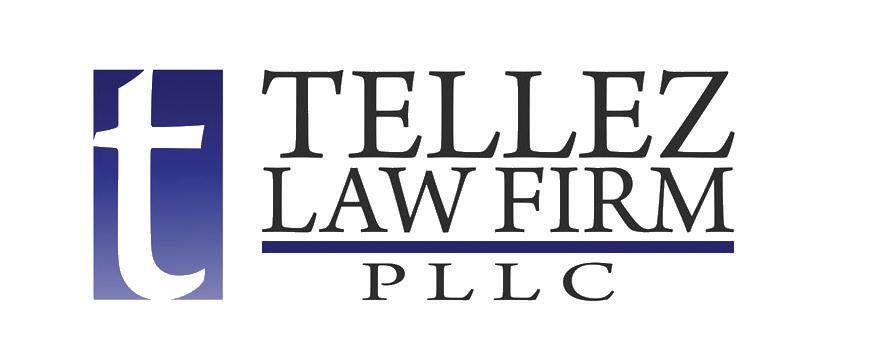
4. Ark. R. App. P.–Civ. 2(a)(2)–(13), (d).
5. Id.; see also In re Est. of Stinnett, 2011 Ark. 278, at 6–7, 383 S.W.3d 357, 361 (requiring an appeal from such an order immediately, rather than after entry of a final order).
6. Ark. R. App. P.–Civ. 2(a)(d).
7. Ark. R. App. P.–Civ. 2(a)(11).
8. Ark. R. Civ. P. 54(b)(1).
9. Id.
10. Andy Taylor, The “Immediately After” Requirement of Rule 54(b) Certificates:
Making Sure We’re All on the Same Page, ArkansasAppeals.com (October 14, 2013), https://arkansasappeals.com/2013/10/14/ the-immediately-after-requirement-of-rule54b-certificates-making-sure-were-all-onthe-same-page/.

11. Andy Taylor, The Rule 54(b) Certificate Requirement of “Specific Factual Findings”: Billingsley v. Benton NWA Properties, LLC, ArkansasAppeals.com (March 12, 2014), https://arkansasappeals.com/2014/03/12/ the-rule-54b-certificate-requirement-ofspecific-factual-findings-billingsley-vbenton-nwa-properties-llc/.
12. 2016 Ark. 105, at 3, 486 S.W.3d 766, 769.
13. Id.
14. Id. at 3–4, 486 S.W.3d at 770.
15. Roach v. Roach, 2019 Ark. App. 34, at 5–6, 571 S.W.3d 487, 490.
16. Potter v. Potter, 2022 Ark. App. 170, at 3, 643 S.W.3d 848, 850.
17. Id.
18. Id.
19. Ark. R. App. P.–Civ. 2(d).
Vol. 57 No. 4/Fall 2022 The Arkansas Lawyer 21
DO YOU NEED HELP WITH SPANISH SPEAKING CLIENTS? WE ARE HERE TO HELP YOU. Helping the Spanish speaking community since 2009 Criminal Cases DWI/DUI Cases Accident Cases Robert E. Tellez 628 W. Broadway, Suite 102, North Little Rock, Arkansas 72114 tellezlawfirm.com (501) 353-2901
20. Ford v. Ford, 347 Ark. 485, 490, 65 S.W.3d 432, 436 (2002).
21. Gilbert v. Moore, 364 Ark. 127, 129, 216 S.W.3d 583, 585 (2005).
22. No. CA03-388, 2004 WL 848308, at *2 (Ark. Ct. App. Apr. 21, 2004).
23. 2015 Ark. App. 318, 1–2. 24. Id. at 3.
25. Id.
26. Id.; see also Kines v. McBride, 2017 Ark. App. 40, at 4, 511 S.W.3d 352, 354–55.
27. Ellis v. Arkansas State Highway Comm'n, 2010 Ark. 196, at 6–7, 363 S.W.3d 321, 325.
28. Id.
29. Dodge v. Lee, 350 Ark. 480, 486–87, 88 S.W.3d 843, 847 (2002).
30. Ford Motor Co. v. Washington, 2012 Ark. 325, at 2.
31. Johnson v. Windstream Commc’ns, Inc., 2016 Ark. App. 419, at 3.

32. Blaylock v. Shearson Lehman Bros., 330 Ark. 620, 624, 954 S.W.2d 939, 941 (1997) (“a court order is necessary to grant a nonsuit and that the judgment or decree must be entered to be effective.”).
33. Ark. R. App. P.–Civ. 3(e)(vi).
34. Id.
35. See Wilson v. Greg Williams Farm, Inc., 2013 Ark. App. 248, at 5 (holding that the order would have been appealable even though the dismissal of some of the claims was without prejudice, but it was not appealable in this particular case because the appellant had omitted the language from his notice of appeal).
36. See, e.g., Bevans v. Deutsche Bank Nat’l Tr. Co., 373 Ark. 105, 107, 281 S.W.3d 740, 742 (2008).
37. Jenkins v. APS Ins., LLC, 2012 Ark. App. 368, at 5.
38. Ford, 2012 Ark. 354, at 2.
39. Roach v. Roach, 2019 Ark. App. 34, at 6, 571 S.W.3d 487, 490.
40. 369 Ark. 442, 446, 255 S.W.3d 834, 838 (2007) (emphasis in original).
41. 2016 Ark. App. 90, at 6 (Harrison, J., concurring).
42. Id. at 4–5.
43. Id. at 5.
44. 369 Ark. at 442, 255 S.W.3d at 834.
45. Id. at 445, 255 S.W.3d at 837.
46. Massanelli, 2016 Ark. App. 90, at 7 (Harrison, J., concurring).
47. Sloan, 369 Ark. at 446, 255 S.W.3d at 838.
48. Massanelli, 2016 Ark. App. 90, at 5–10 (Harrison, J., concurring) (“In my view, Sloan provided no satisfying legal reason why a late notice of appeal must trump a non-final order when both problems appear simultaneously in the same appeal.”).
49. Id. at 7 (Harrison, J., concurring).
50. Cooper v. Bryant, 2022 Ark. App. 90, at 6.
51. Id. at 5.
52. Id. at 3.
53. Id. at 7.
54. Id. at 6.




55. Id. at 8–17 (Hixson, J., concurring).
56. Ark. R. Civ. P. 54(b)(1).
57. Ark. R. App. P.–Civ. 3(e)(vi).
58. See, e.g., Booker v. Booker, 2021 Ark. App. 327, at 3 (dismissing appeal without prejudice for entry of final order). ■
22 The Arkansas Lawyer www.arkbar.com
501.663.6000 11525 Cantrell Rd, Little Rock Exceptional luxury real estate services WestLittleRock.EVRealEstate.com Luxurious 4 bedroom, 3.5 bath home completed in 2022
If you love your clients, but need a new environment designed to maximize your practice, let’s start a conversation.
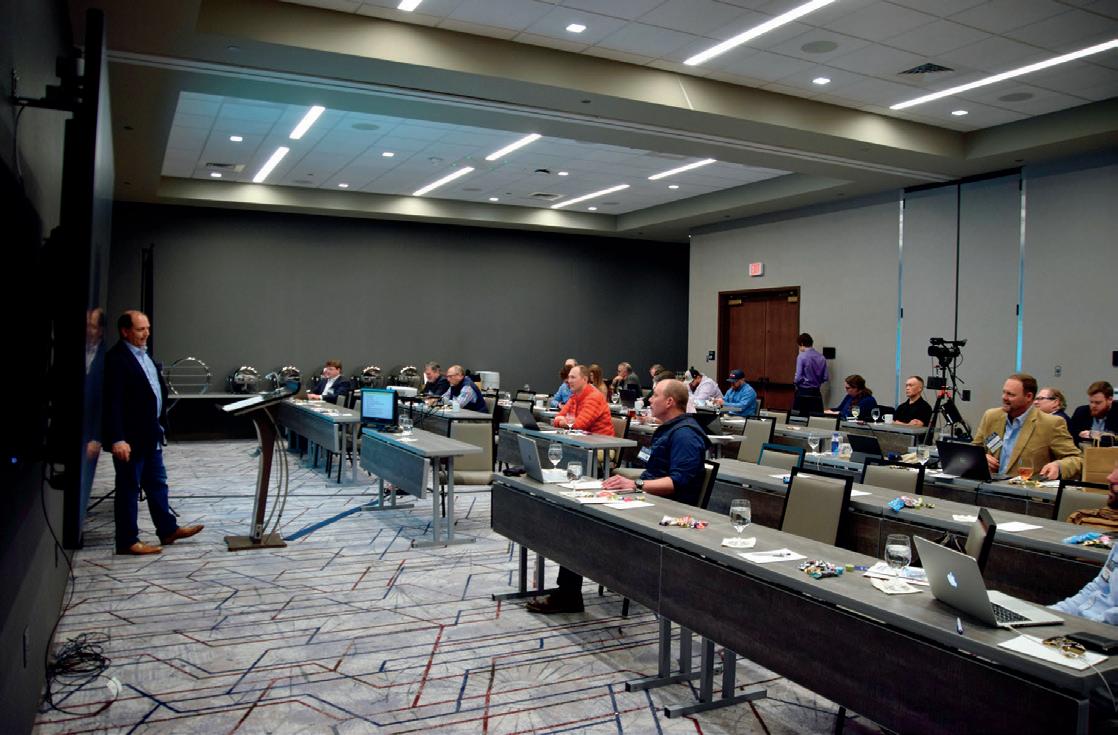


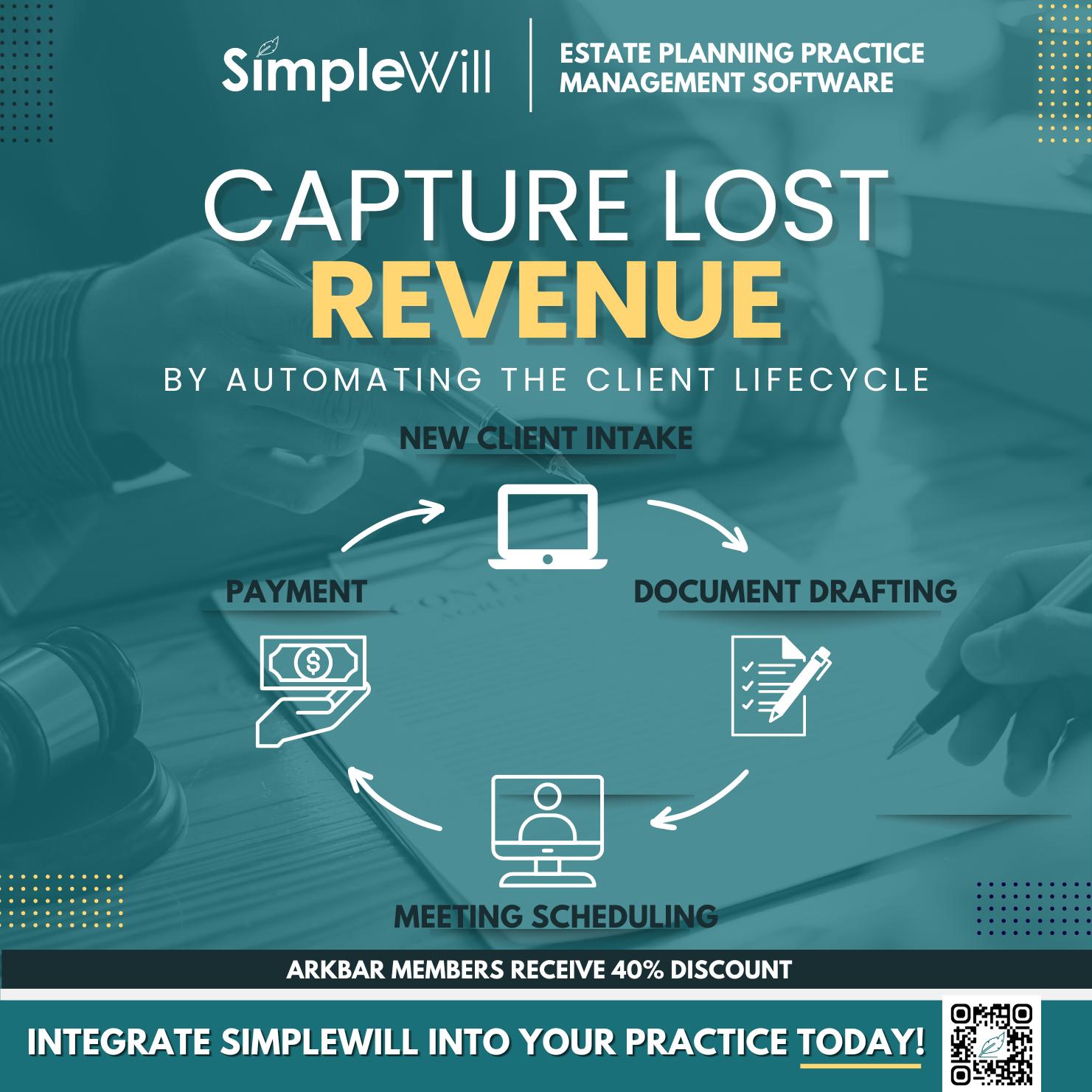

McDaniel Wolff, PLLC is building a toptier business practice with expertise in tax, estate planning, corporate law, real estate, administrative law, mergers and acquisitions, government relations and litigation.
Our growth is aggressive, and we offer a real opportunity to the right attorney or practice group considering a change.

Contact Vince Ward at vward@mcdanielwolff.com.

MC
Vol. 57 No. 4/Fall 2022 The Arkansas Lawyer 23
DANIEL WOLFF
LAW FIRM MERGERS ARE THE TREND NATIONALLY. 1307
Street Little
72201 501.954.8000 www.McDanielWolff.com 1401 West Capitol Suite 165 Little Rock AR 72201 501-376-2852 www.arktla.org A R K A N S A S T R I A L L A W Y E R S A S S 0 C I A T I O N
West 4th
Rock, AR
Firmly Lodging the Appellate Record:
How to Avoid Common Pitfalls in Appellate Rule 5(b)
By Joshua C. Ashley and Tim Cullen
Introduction
Joshua C. Ashley is a partner at Friday, Eldredge & Clark, LLP. His practice focuses on commercial litigation and appeals. Tim Cullen has been writing appeal briefs for 25 years in private practice after clerking for Judge Terry Crabtree on the Arkansas Court of Appeals in 1996–97.


In a civil case, the appellant must lodge the appellate record within 90 days after the first notice of appeal is filed, or 30 days after the first notice of appeal if the appeal is interlocutory.1 If the record isn’t timely lodged, the appellate court will dismiss the appeal for lack of jurisdiction—“[t]he timely filings of the notice of appeal and the record are threshold jurisdictional prerequisites for [the appellate] court.”2 Unlike in federal court, in Arkansas state court the responsibility for “perfecting the appeal”—including transmitting the record to the appellate court—“rests solely with a petitioner, not the circuit clerk, circuit court, or any other person.”3 But while the appellant is tasked with lodging the record, the appellant is not the one preparing it—that task falls to the court reporter and the circuit clerk.4 This feature of statecourt appellate practice puts practitioners in a squeeze. The lawyer must deliver the meal on time, but is not running the kitchen. Perhaps recognizing this difficulty, the appellate rules provide two relief valves. The first is a motion for extension of time to lodge the record under Ark. R. App. P.–Civ. 5(b), which is designed to allow the court reporter or circuit clerk more time to prepare the record.5 The second is a writ of certiorari from the Supreme Court, but that option is available only when the Rule 5(b) door is locked, and for reasons beyond the appellant’s control.6
In this article we discuss the two main requirements for an effective motion and extension order under Rule 5(b), and note some common pitfalls to avoid.
1. Text of the Rule
For reference, the full text of Ark. R. App. P.–Civ. 5(b) is as follows:
(1) If any party has designated stenographically reported material for inclusion in the record on appeal, the circuit court, by order entered before expiration of the period prescribed by subdivision (a) of this rule or a prior extension order, may extend the time for filing the record only if it makes the following findings:
(A) The appellant has filed a motion explaining the reasons for the requested extension and served the motion on all counsel of record;
24 The Arkansas Lawyer www.arkbar.com
(B) The time to file the record on appeal has not yet expired;
(C) All parties have had the opportunity to be heard on the motion, either at a hearing or by responding in writing;
(D) The appellant, in compliance with Rule 6(b), has timely ordered the stenographically reported material from the court reporter and made any financial arrangements required for its preparation; and
(E) An extension of time is necessary for the court reporter to include the stenographically reported material in the record on appeal or for the circuit clerk to compile the record.

(2) In no event shall the time be extended more than seven (7) months from the date of the filing of the first notice of appeal.
(3) If the appellant has obtained the maximum seven-month extension available from the circuit court, or demonstrates (by affidavit or otherwise) an inability to obtain entry of an order of extension, then before expiration of the period prescribed by subdivision (a) of this rule or a prior extension order, the appellant may file with the clerk of the Supreme Court a petition for writ of certiorari pursuant to Rule 3-5 of the Rules of the Supreme Court and Court of Appeals.
A proper Rule 5 extension must be preceded by a motion by the appellant. This would seem obvious, but the implications might not be. The biggest implication is that the circuit court cannot simply enter an order extending the time to lodge the record; nor can the court reporter file his or her own motion for extension.
Rose Care, Inc. v. Jones is a cautionary tale.7 There the circuit court entered an order extending the time to lodge the record, but the appellant had not filed a motion or otherwise given notice to the appellee.8 The appellant argued that the extension was “unquestionably necessary” because the court reporter had been suspended, that there were no grounds for objecting to it, and that the appellee suffered no prejudice from it.9 The Supreme Court rejected these arguments, holding that none of them “justify dispensing with the clear requirements of the rule.”10 “Strict compliance is strict compliance,” said the Court.11 Granting extensions is not a “mere formality.”12 The extension order was therefore void, so the appellant had failed to timely lodge the record.13 Appeal dismissed.14
Rose Care does not stand alone. In 2004, the same year it handed down Rose Care, the Supreme Court noted that an extension order could not have complied with Rule 5(b) when the precipitating motion was filed by the court reporter rather than the appellant.15 Four years later, in Spurlock v. Riddell, the Court again addressed a situation in which the court reporter filed the extension
motion and stated that all parties had been given notice.16 No go. Although no one had objected to the extension, the Court said that this “does not excuse Appellants’ failure to comply with our rules.”17 The appeal was “stricken from the docket,” and the filing fee was forfeited.18
These published decisions hardly scratch the surface of Rule 5(b) dismissals, given that most Rule 5(b) dismissals operate in one-sentence orders.19
Turning to the other Rule 5(b) requirements, not only must the motion be made by the appellant, but it must be “filed.”20 This would seem to preclude an oral motion made at a hearing. And even if an oral motion could suffice, the best course is to create a clear record by moving in writing.
What should the motion say? It should state the reasons an extension is needed— namely, that the court reporter or circuit clerk needs more time to compile the record.21 This is best accomplished by an affidavit from the court reporter or circuit clerk, but an unsworn representation in a motion might suffice, particularly if the motion is unopposed. (More on that below.) As a predicate for why an extension is needed, the motion should also state that the appellant has timely ordered the transcript, although that representation should already have been made in the notice of appeal.22 This part about ordering the transcript might raise the question whether a Rule 5(b) motion is appropriate in an appeal without a transcript. Despite the mixed signals in the text of the rule, the 2012 reporter’s notes make plain that the
Vol. 57 No. 4/Fall 2022 The Arkansas Lawyer 25
2. Issue Number One: Who Makes the Motion, and How?
rule is intended for situations where the circuit clerk—not just the court reporter— needs more time.23
When should the motion be filed?
Section Three below addresses some particularly thorny timing issues. But at a minimum, the extension motion—as well as the extension order itself—must be filed before the record-lodging deadline runs.24 This means either the original deadline or the extended deadline, assuming the original deadline was properly extended. It is always a good idea to get the appellee’s written consent to the extension. As discussed below, this will smooth the extension process considerably, and will add a layer of protection if questions are later raised about the timing of the motion and order. Opposing counsel will generally agree to an extension, given that it’s really the court reporter or circuit clerk who needs it, and few lawyers want to get on the court reporter or circuit clerk’s bad side.
How much of an extension can you get? Not more than seven months from the filing of the first notice of appeal.25 If you find yourself bumping up against the sevenmonth limit, you’ll have to file a petition for writ of certiorari from the Supreme Court to address the problem.26
3. Issue Number Two: What is an “opportunity to be heard”?
The principle in Rule 5(b)(1)(C) seems simple enough—all parties get an opportunity to be heard on the motion, either at a hearing or by responding in writing. But what this means in practice is an open question with potentially fatal consequences.
One thing we know for sure: Although a hearing might be the definitive way to meet Rule 5(b)’s requirements, Rule 5(b)(1)(C) does not require a hearing.27 An opportunity to respond in writing is enough. But what precisely does that mean?
In Ashley v. Ashley, the appellees sought dismissal of the appeal where the extension motion was filed on December 22, 2014, and the extension order was entered 11 days later, on January 2, 2015.28 The appellees argued that under Ark. R. Civ. P. 6, they had until January 9 to respond (10 business days from the motion, plus three days for service). And they argued that because the
extension order was entered before their response time had run, they lacked an opportunity to respond in writing, which meant that the strict requirements of Rule 5(b)(1)(C) were not met and the appeal must be dismissed.
The Supreme Court rejected this argument, observing that Rule 5(b) “does not provide an express time period in which a party must have an opportunity to be heard.”29 The Court further said that it would “not read into Rule 5(b) the time limitations imposed by the Arkansas Rules of Civil Procedure.” The Court concluded that the appellees had an opportunity to be heard, and that they did not demonstrate how they would have been better served by having more time.30 The Court did not, however, give any further guidance on how many days are read into Rule 5(b).
In a more recent case, Kinder v. Kinder, the Court of Appeals held that 28 hours “does not give the responding party sufficient opportunity to be heard on a Rule 5(b)(1) motion.”31 (Kinder is currently back before the Court of Appeals after the Supreme Court granted review and remanded to the Court of Appeals.32)
It would therefore appear that the opportunity line lies somewhere between 28 hours and 11 days.
The best course is to avoid an opportunity-to-be-heard problem by securing an affirmation on the record or in writing from all parties that there was an adequate opportunity to respond and there were no objections. Such an affirmation could be made on the record in a hearing, or memorialized in a specific finding in the extension order after a telephone conference or with an “approved” signature by all parties’ counsel on an agreed order.
Because opposing counsel’s agreement is not guaranteed, there is great risk in waiting too late to file the extension motion, given that the extension order must be entered before the record-lodging deadline expires.33 A late motion could create a problem if someone withholds consent and there is no reasonable opportunity to respond before the deadline runs. In that circumstance, even if the circuit court would have granted the extension over opposing counsel’s objection, the timing alone precludes relief. A party seeking an extension of time to file
the record should therefore move early, and should be wary of an order entered without the consent of all parties too quickly after the motion is filed, because no one knows exactly how many days’ worth of “opportunity” is required by Rule 5(b)(1)(C).
4. Issue Number Three: When and how to attack a Rule 5(b) problem, and to what effect.
If you find yourself in an appeal with a Rule 5(b) problem, and you decide to seek dismissal of the appeal based on that problem, the timing of the challenge is important.
Although the Supreme Court has made it “very clear that we expect strict compliance with the requirements of Rule 5(b),”34 and a Rule 5(b) order that does not strictly comply with the rule is void,35 and “the timely filing of the record on appeal is a jurisdictional requirement to perfecting an appeal,”36 the Supreme Court has also held, in Holloway v. Arkansas State Board of Architects, that a challenge to a Rule 5(b) order is untimely if made after the record is lodged.37 A dismissal motion a week after the record is lodged is too late.38 This is particularly true where the dismissal motion does not allege prejudice or argue that the Rule 5(b) extension could successfully have been opposed in the trial court.39 And while the defect in Holloway concerned who had moved for the Rule 5(b) extension (there, it was the court reporter), the Supreme Court has reached a similar conclusion when the Rule 5(b) defect was about the extension order’s findings, rather than who requested it.40
This article does not attempt to reconcile the Supreme Court’s strict-compliance, jurisdictional view of Rule 5(b) with the Court’s forfeiture view of Rule 5(b).41 Nor do we speculate on why appeals have sometimes been dismissed for Rule 5(b) problems when the motion to dismiss was filed well after the record was lodged.42 The question for the practitioner is how to steer wide of any timing problem when challenging a defective Rule 5(b) order.
There are two ways to do this. One is to file a partial record and a motion to dismiss before the record is lodged. In general terms, Ark. R. App. P.–Civ. 5(c) supplies the warrant for this maneuver, and the Supreme
26 The Arkansas Lawyer www.arkbar.com




Landex Research, Inc. PROBATE RESEARCH Missing and Unknown Heirs Located No Expense to the Estate Domestic and International Service for: Courts Lawyers Trust Officers Administrators/Executors 1345 Wiley Road Suite 121, Schaumburg, IL 60173 Telephone: 800-844-6778 Fax: 800-946-6990 www.landexresearch.com State Board or DEA Licensure Issues? Call Pharmacist/Attorney Darren O’Quinn 800-455-0581 www.DarrenOQuinn.com Representing: Doctors Pharmacists Nurses Healthcare Providers The Law Offices of Darren O’Quinn 36 Rahling Circle, Suite 4 Little Rock, Arkansas 72223 The Arkansas Bar Association thanks the Wilson Law Group for donating proceeds from the Wilson Law Group Third Annual CLE Program in October. 500 PRESIDENT CLINTON AVENUE, SUITE 200 LITTLE ROCK, ARKANSAS 72201 501.371.9999 | WWW.CGWG.COM INTEGRITY. INNOVATION. EXPERIENCE. CROSS, GUNTER, WITHERSPOON & GALCHUS, P.C. EMPLOYMENT & LABOR | WAGE & HOUR | IMMIGRATION GOVERNMENTAL AFFAIRS | HEALTHCARE TRANSPORTATION | CONSTRUCTION ESTATE PLANNING | ELDER LAW | PROBATE | & MORE
Court has confirmed that when an appeal is barred, this path to dismissal is proper.43 The other way to avoid an untimely motion to dismiss as an appellee is to have the good fortune of the appellate clerk spotting the Rule 5(b) problem and refusing to lodge the record. That is what happened in Spurlock v. Riddell—the clerk refused to file the record because the extension order did not comply with Rule 5(b), and the appellant filed a motion for rule on the clerk, which the Supreme Court denied.44 Thus, despite Holloway’s teaching, it is possible, under Spurlock, to have an appeal dismissed without the appellee filing any motion at all. Regardless, the better practice is to make your own dismissal motion, and to make it timely.
Assuming you timely highlight a Rule 5(b) problem, what’s the remedy? It depends. If the problem is that the extension order lacks the requisite findings, then the remedy is typically a remand for the circuit court to make the required findings—which, by implication, means determining whether Rule 5(b)’s requirements were in fact met.45 But the focus on remand is whether the rule was complied with at the time the extension motion was filed and granted.46 A remand is not a compliance do-over.47 So if the issue is whether the appellee had an adequate opportunity to respond to the motion, a remand probably makes sense.48 But if the issue is whether the appellant (as opposed to the court reporter or no one) filed the extension motion, then a remand would be futile; if no extension motion by the appellant appears of record, then the failure to comply with Rule 5(b) is self-evident and incurable.49
Conclusion
Staying out of the appellate Serbonian Bog remains a challenge.50 Until we have a system in which the record is transmitted directly from the trial court to the appellate court, careful attention to lodging the record on time is vital. And because court reporters and circuit clerks—like lawyers— sometimes need more time, careful attention to the Rule 5(b) extension process is equally important.
Endnotes:
1. Ark. R. App. P.–Civ. 5(a).
2. Medicanna, LLC v. Ark. Dept. of Fin. & Admin., 2021 Ark. 227, at 3.
3. Spurlock v. Riddell, 373 Ark. 199, 199, 282 S.W.3d 811, 812 (2008).
4. See, e.g., Ark. S. Ct. R. 3-1(f) (referring to “[t]he circuit clerk’s portion of the record” and “[t]he court reporter’s portion of the record”).
5. Ark. R. App. P.–Civ. 5(b)(1)(E).
6. Ark. R. App. P.–Civ. 5(b)(3); see also Coggins v. Coggins, 353 Ark. 431, 435, 108 S.W.3d 588, 590 (2003) (“We must deny the writ, however, because [appellant] has not made any showing that he was unable to obtain entry of an order from the trial court further extending the time to file the record.”).
7. 355 Ark. 682, 144 S.W.3d 738 (2004).
8. Id. at 686, 144 S.W.3d at 740.
9. Id. at 686–87, 144 S.W.3d at 740.
10. Id. at 687, 144 S.W.3d at 741.
11. Id. 12. Id. 13. Id. 14. Id.
15. Hickson v. Ark. Dept. of Human Servs., 357 Ark. 577, 579, 182 S.W.3d 483, 484 n.1 (2004).
16. 373 Ark. 38, 40, 280 S.W.3d 18, 19 n.1 (2008) (“Spurlock I”).
17. 373 Ark. 199, 200, 282 S.W.3d 811, 812 (2008) (“Spurlock II”).
18. 373 Ark. 38, 40, 280 S.W.3d 18, 19 (2008).
19. See, e.g., McGary v. Union Pac. R.R. Co., CV-17-858, Formal Order (Ark. Sup. Ct. Dec. 14, 2017); Schwartz v. Sales, CV-22160, Formal Order (Ark. Ct. App. June 1, 2022).
20. Ark. R. App. P.–Civ. 5(b)(1)(A).
21. Ark. R. App. P.–Civ. 5(b)(1)(A), (E).
22. Ark. R. App. P.–Civ. 5(b)(1)(D); Ark. R. App. P.–Civ. 3(e)(iv); Ark. R. App. P.–Civ. 6(b).
23. Ark. R. App. P.–Civ. 5 reporter’s notes to 2012 amendment.
24. Ark. R. App. P.–Civ. 5(b)(1)(B).
25. Ark. R. App. P.–Civ. 5(b)(2).
26. Ark. R. App. P.–Civ. 5(b)(3).
27. Ashley v. Ashley, 2016 Ark. 161, at 4, 489 S.W.3d 660, 663 (“a circuit court is not required to hold a hearing before entering an extension order if there is an opportunity
to respond in writing”).
28. 2016 Ark. 161 at 5, 489 S.W.3d at 664. 29. Id.
30. Id. This sentence also hints at a requirement to show prejudice when alleging an inadequate time to respond. Such a requirement is not apparent in the text of Ark. R. App. P.–Civ. 5, and is beyond the scope of this article.
31. 2022 Ark. App. 39, at 4, 639 S.W.3d 882, 884.
32. Kinder v. Kinder, CV-19-858, Formal Order (Ark. Apr. 21, 2022).
33. Ark. R. App. P.–Civ. 5(b)(1).
34. Spurlock II, 373 Ark. at 200, 282 S.W.3d at 812.
35. Spurlock I, 373 Ark. at 40, 280 S.W.3d at 19.
36. Rose Care, 355 Ark. at 687, 144 S.W.3d at 741.
37. 348 Ark. 99, 102, 71 S.W.3d 563, 565 (2002).
38. Id. at 104, 71 S.W.3d at 566.
39. Id.
40. Dugal Logging, Inc. v. Ark. Pulpwood Co., 336 Ark. 55, 58, 984 S.W.2d 410, 411 (1999).
41. The rationale in Holloway seems best described as finding a forfeiture (the failure to timely assert a right) rather than a waiver (the intentional relinquishment of a known right). See Hamer v. Neighborhood Housing Servs. of Chi., 138 S. Ct. 13, 17 n.1 (2017) (distinguishing waiver and forfeiture).
42. See, e.g., Schwartz v. Sales, CV-22-160, Formal Order (Ark. Ct. App. June 1, 2022).
43. Mitchell v. Mountain View, 304 Ark. 585, 586, 803 S.W.2d 556, 557 (1991).
44. 373 Ark. at 39, 280 S.W.3d at 18.
45. See Spurlock II, 373 Ark. at 200, 282 S.W.3d at 812.
46. Id.
47. Lancaster v. Carter, 372 Ark. 181, 181–82, 271 S.W.3d 522, 523 (2008).
48. Id. at 181–82, 271 S.W.3d at 523.
49. Spurlock II, 373 Ark. at 200, 282 S.W.3d at 812.
50. See Leon Holmes, Pitfalls of the Appellate Practice: Avoiding the Serbonian Bog, 35 Ark. Law. 10 (Sum. 2000). ■
28 The Arkansas Lawyer www.arkbar.com




Vol. 57 No. 4/Fall 2022 The Arkansas Lawyer 29 EXPERT INDUSTRIAL HYGIENIST ➢ ➢ ➢ ➢ ➢ EXPERT KNOWLEDGE IN • • • • Phillip Bellan, J.D., CIH, CSP Bellanconsultinggroup@gmail.com https://www.bellanenvironmental.com/ 225 588 9066 Phillip Bellan J.D., CIH, CSP Bellanconsultinggroup@ gmail.com https://www. bellanenvironmental.com/ 225-588-9066 EXPERT INDUSTRIAL HYGIENIST Join us in welcoming our newest associate attorney, Logan J. Timmis. 425 West Capitol Avenue, Suite 3800 • Little Rock, Arkansas 72201 501-376-3800 • www.gill-law.com Business Transactions and Corporate Law • Full Time Practicing IH • CIH • CSP • Accredited by LDEQ in all asbestos disciplines • Federal Court Experience EXPERT KNOWLEDGE IN • Asbestos, Lead & Mold • Indoor Air Quality • Noise • Benzense, Formaldehyde Silica, etc.
Members who have served in the military
Overton Anderson
Philip S. Anderson
James A. Badami
Frank Bailey
Marilyn Dearien Barton
Zach Baumgarten
Jonathan W. Beck
Joe Benson
Ed Bethune
Allen W. Bird II
Sam N. Bird
Judge Denzil Keith Blackman Daniel C. Blaney
John Dudley Bridgforth
Charles A. Brown
Major Natalie G. Brown LeAnne Pittman Burch
William Jackson Butt, II
Worth Camp
Jennifer Carlisle
Charles L. Carpenter, Jr. Jerry W. Cavaneau
John S. “Jack” Cherry
Nathan Coulter
F. Thomas “Tom” Curry
Justice Paul Danielson
Jerry Dodd Greg Downs
Don R. Elliott Jr.
Bob Estes
Peter G. Estes, Jr.
John C. Everett Judge Vic Fleming Sam Gibson
Martin G. Gilbert John P. Gill Morton Gitelman James C. Graves Ron Griggs Judge Wayne Gruber Will Gruber
Judge David F. Guthrie Don F. Hamilton
Stuart W. Hankins Dick Hatfield
William D. Haught
Dr. Morriss Murphey Henry
Robert L. “Skip” Henry Donald C. Hill
Randal Hobbs
Justice Jack W. Holt, Jr. James W. Hyden
Greg S. James
C. Cole Jeffries, Jr. Glenn W. Jones
Robert L. Jones, Jr.
Dak Kees
Joseph M. Kraska
Tim Leathers
John C. Lessel
Fletcher C. Lewis Stark Ligon
Phillip A. McGough
Joseph P. McKay
Col. J. Conley Meredith James McMenis Henry N. Means, III Russ Meeks
George B. Morton J. R. Nash
Edward Nelson Judge David Newbern Jim Nickels
Richard C. Ourand, Jr. Hugh Overholt William L. Owen Eudox Patterson Ellis Lamar Pettus David Dero Phillips John M. Pittman
George Plastiras
David M. Powell
Donald E. Prevallet
Brian D. Rabal
John "Buddy" W. Raines
Gordon S. Rather, Jr. Herbert Lynn Ray Chris Rittenhouse
George Ritter Fred Roberson
William S. Robinson Adam M. Rose
James (Jim) A. Ross, Jr.
Thomas S. Russell
Marissa A. Savells
Corey Seats
Brenda Simpson
Damon C. Singleton
Berl S. Smith, Jr.
James E. Smith, Jr. Judge Kim Smith
Richard H. Smith
Scott E. Smith
F. Mattison Thomas III
Lonnie C. Turner
Richard E. Ulmer
Fred Ursery
Judge Rice VanAusdall
Magistrate Judge Joe Volpe
George Christopher Walthall Stan L. Warrick
John Dewey Watson
Todd C. Watson
Richard N. Watts
Phillip Wells
Wayne Williams
Judge Billy Roy Wilson
Jeffery D. Wood
Daniel H. Woods
Judge Wm. Randal Wright
Kesha Zaffino
Steven S. Zega
30 The Arkansas Lawyer www.arkbar.com
★ ★ ★ ★ ★ ★ ★ ★ ★ ★ ★ ★ ★ ★ ★ ★ ★ ★ ★ ★ ★ ★ ★ ★ ★ ★ ★ ★ ★ ★ ★ ★ ★ ★
This list of Arkansas Bar Association current members who have served in the United States military is published to honor and remember their service. A comprehensive list with more detail on each member’s service and those we are honoring posthumously can be found online at https://www.arkbar. com/for-attorneys/membership-nav/members-in-the-military. The list was compiled from members’ contributions and is not inclusive. If you know of someone who should be included in future publications, please contact the editor.


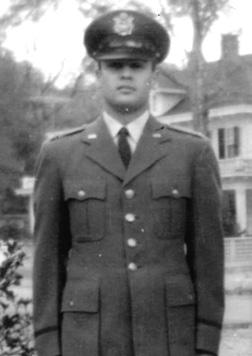
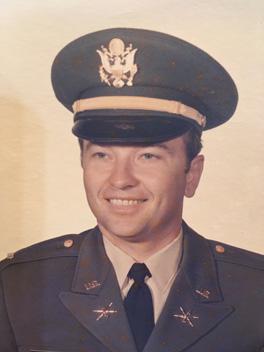
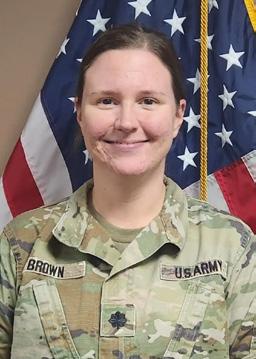






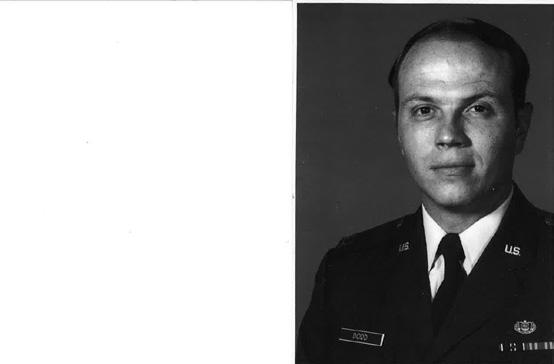
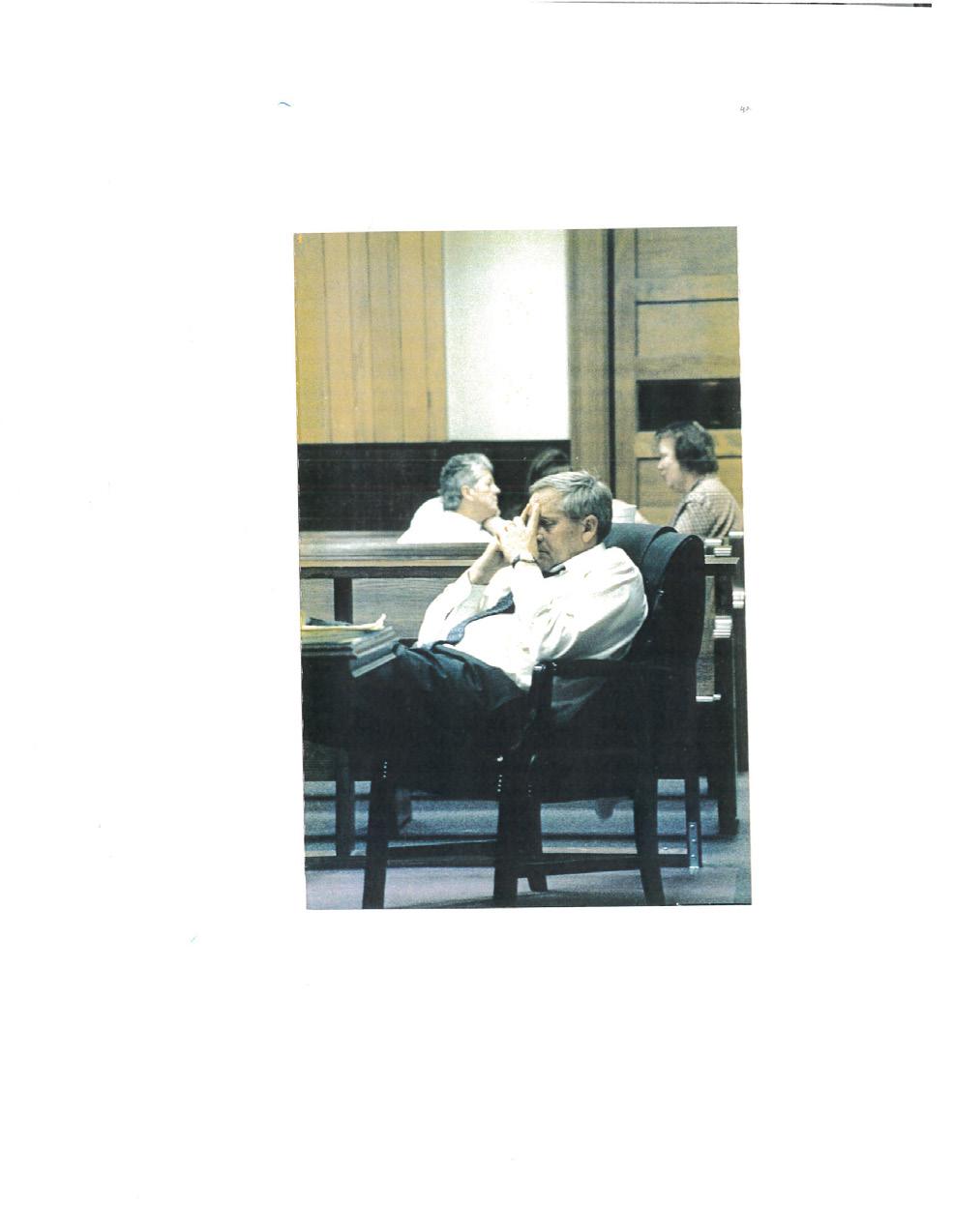















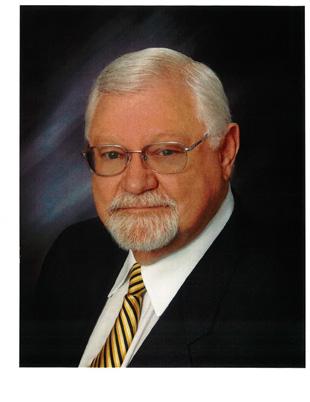





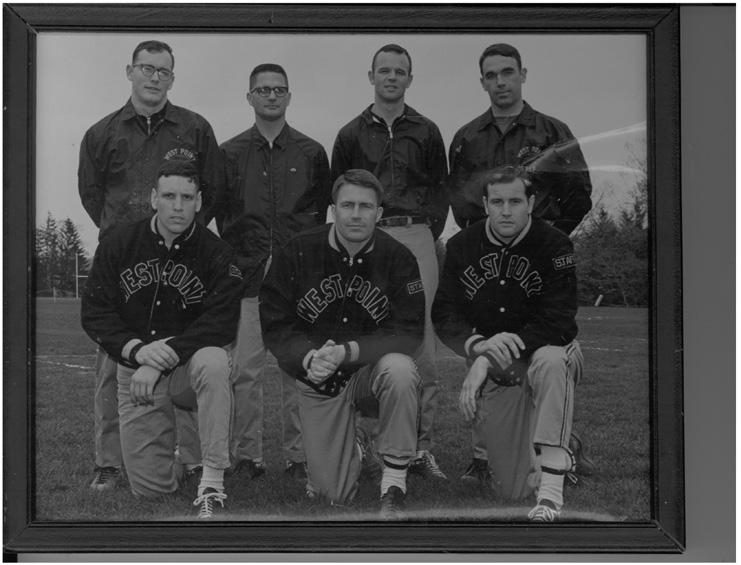















★ ★ ★ ★ ★ ★ ★ ★ ★ ★ ★ ★ ★ ★ ★ ★ ★ ★ ★ ★ ★ ★ ★ ★ ★ ★ ★ ★ ★ ★ ★ ★ ★ ★
Bethune Bird A.
Bird S. Blackman
Brown, N. Burch Butt
Cherry Coulter Curry Dodd Everett
Anderson O. Anderson P. Badami Bailey Beck Benson
Bridgforth
Cavaneau
D. Elliot Downs
Graves Griggs Gruber Wa. Gruber Wi.
Guthrie
Hamilton
Haught
Hill Hobbs
Hyden
James Jones R. Kees
Leathers
Kraska
Henry, M.
Danielson
Holt
Fleming
Baumgarten
★ ★ ★ ★ ★ ★ ★ ★ ★ ★ ★ ★ ★ ★ ★ ★ ★ ★ ★ ★ ★ ★ ★ ★ ★ ★ ★ ★ ★ ★ ★ ★ ★ ★
McGough
JUDICIAL COUNCIL MEETS

The Arkansas Judicial Council met in Fort Smith in October for their annual fall meeting. New officers for the 2007-2008 terms are: Hon. Rice Van Ausdall-Pres., Hon. Kim Smith-Immediate Past President, Hon. John Dan KempPres. Elect, and J.D. GingerichSecretary/Treasurer.
Hon. Lance Hanshaw, and Hon. John Homer Wright.



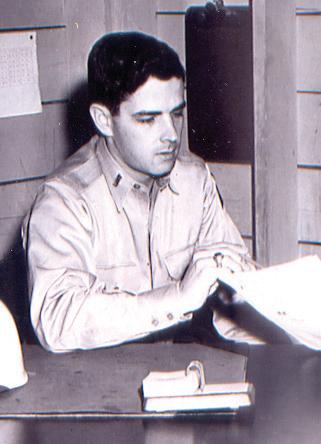








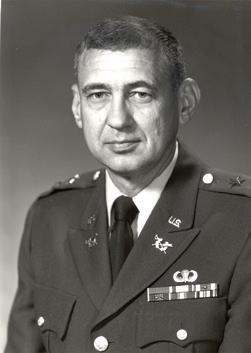


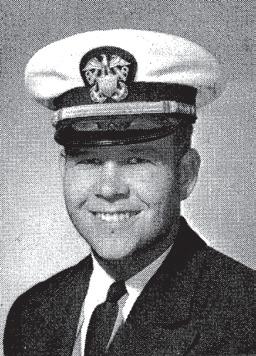
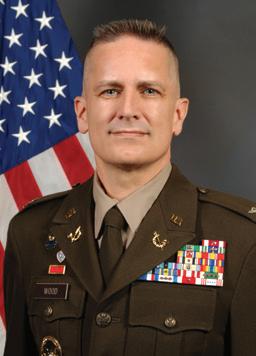












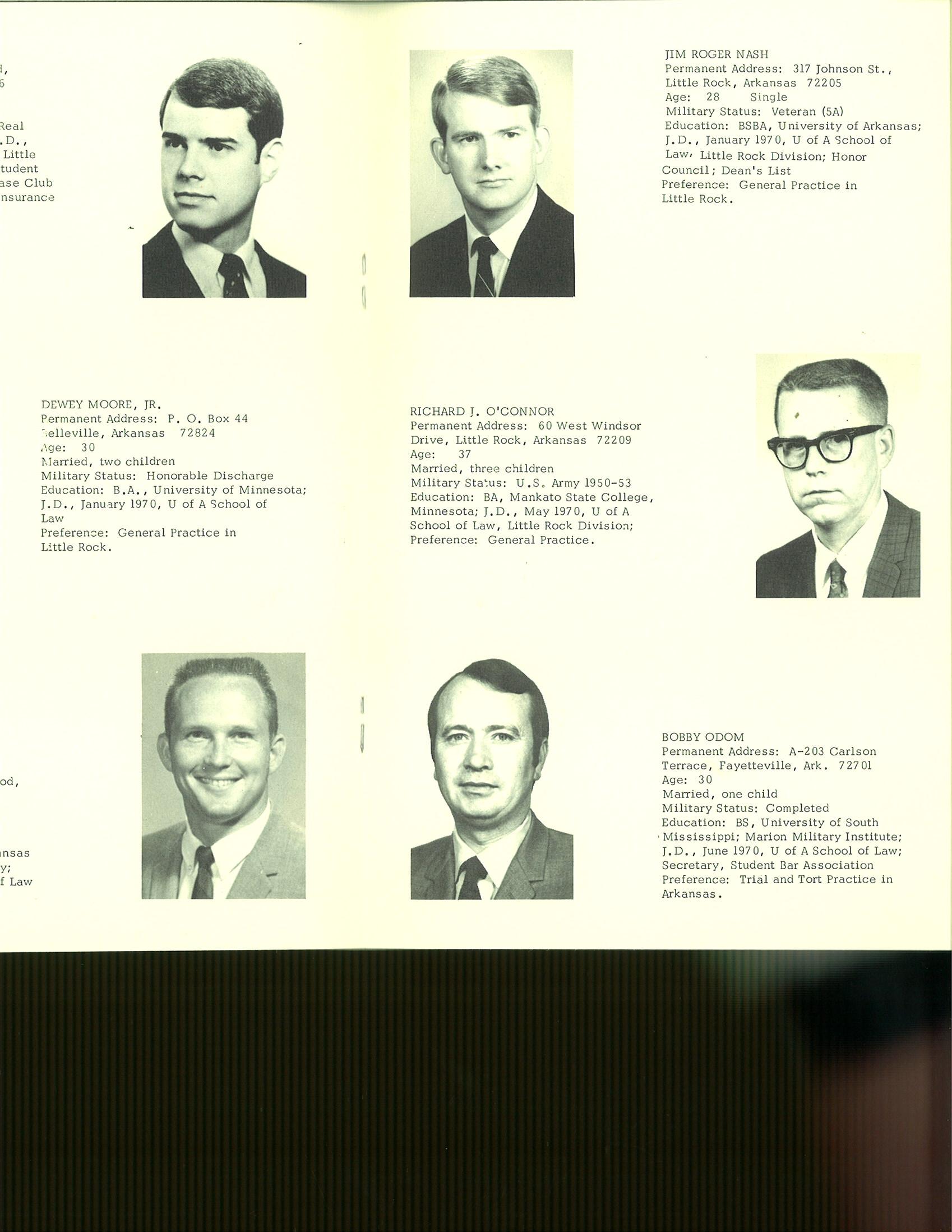

Please visit ArkBar’s Tribute to Members who Have Served in the Military Web page at the link below or scan the code: https://www.arkbar.com/for-attorneys/membership-nav/members-in-the-military

Board members are: Hon. Alan Epley, Hon. Carol Anthony, Hon. Vann
Hon. Ralph Wilson received the “Community Service Award”. The award is presented each year to a judge that is chosen by his/her peers for off the bench activities in service to the community.
Judge Wilson has served as President of Osceola Chamber of Commerce, President of Osceola
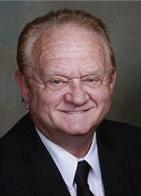
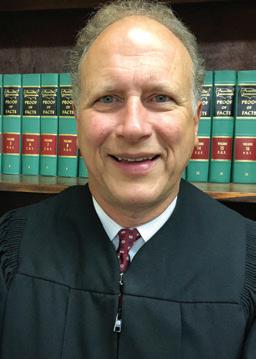
Supreme Court Historical Society Holds Annual Conference
The Arkansas Supreme Court Historical Society held their 2007 Annual Conference at the Justice Building in Little Rock on October 5th. Presentation topics at the day
★ ★ ★ ★ ★ ★ ★ ★ ★ ★ ★ ★ ★ ★ ★ ★ ★ ★ ★ ★ ★ ★ ★ ★ ★ ★ ★ ★ ★ ★ ★ ★ ★ ★
Savells
Ulmer
Wells
Overholt
Owen
Pettus
Rather
Rittenhouse
Ursery
Ray
Walthall Warrick
Watson T. Watts
Williams
Wood Woods Wright
Zega Wilson
Judicial Council Officers and Board members that served during the 2006-2007 term: (seated: left to right) Judge Rice Van Ausdall, Judge Lance Hanshaw, Judge Alan Epley. (Standing: left to right) Judge Vann Smith, Judge Ellen Brantley, Judge Jim Spears, Judge Don Glover, J.D. Gingerich, Judge Kim Smith, Judge Carol Anthony, Judge John Fogleman and Judge Joe Griffin. (Not pictured, Judge John Pittman.)
Smith, Hon. Mark Lindsay,
Kiwanis Club, and on the Osceola
courthouses, since 1989.
Judge Ralph Wilson receives the “Community Service Award” from Judicial Council Pres. Kim Smith.
long conference included the
VanAusdall
Volpe
Zaffino
Watson, J.D.
Raines
Ourand Nash Meeks McKay McMenis
Merideth
Martin of Little Rock died September 3, 2022, at the age of 90. Fondly called the "Colonel," Bill served as the Executive Director of the Arkansas Bar Association from 1984–1997, a position he took after retiring from the Air Force where he served 28 years as an Air Force lawyer (JAG). Bill remained extremely active in the legal community after retiring as Executive Director. He served as the Association's SecretaryTreasurer for nine years and another four as Treasurer. He also served on the Board of Governors and House of Delegates. He received the National Conference of Bar Foundations' Award of Excellence for his years of legal philanthropy.
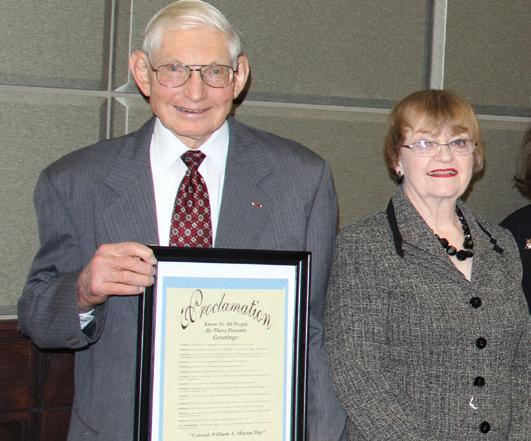
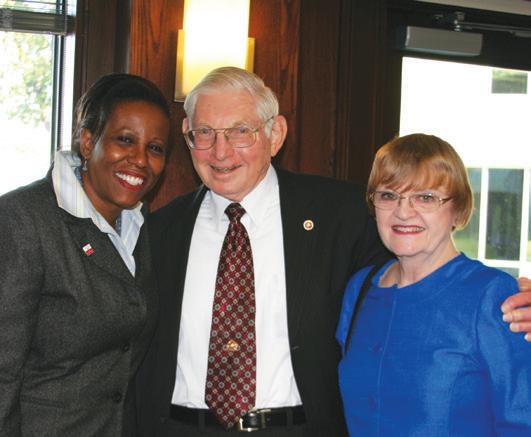
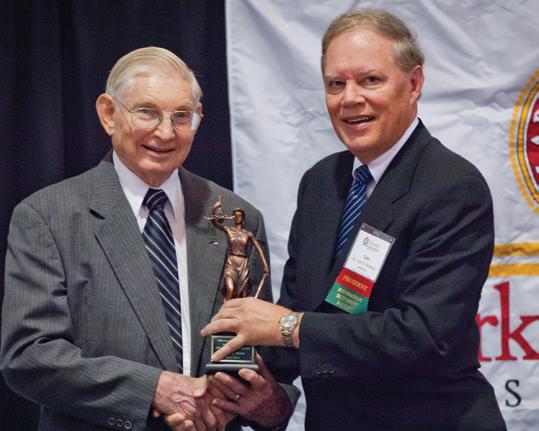
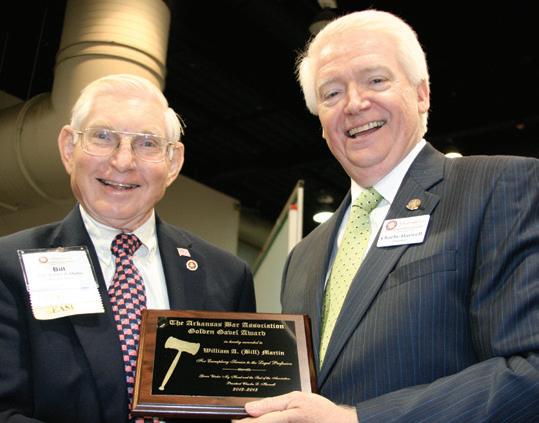
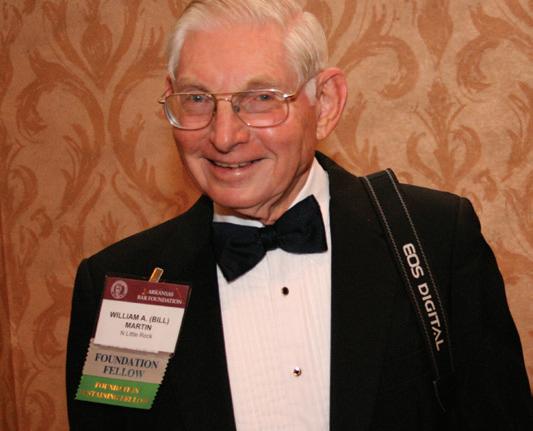
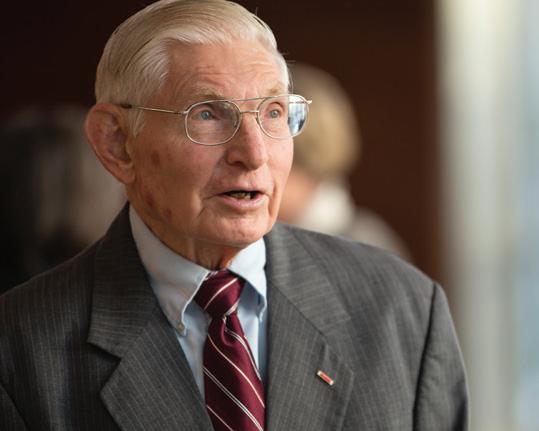
Past President Fred Ursery paid tribute to Bill at his funeral service with a eulogy highlighting Bill's lasting impact on the lawyers in this state. "Bill did an excellent job in all respects. He got us better organized and computerized. He won several national awards for the work he did."

Fred recalled how Bill was a "repository of the history of both the Association and the Foundation. Whenever any question came up about the history, finances, procedures or
bylaws the standard response from bar members was 'I don't know—ask the Colonel.'"
Upon the announcement of Bill's death, members of the Past Presidents posted their comments about "their admiration and love for Bill, and the help he had given during their time as president. They universally pointed out that his good judgment and experience were invaluable to them and what a wonderful person he was to work with," Fred remarked.
"No bar event took place after 1984 that was not extensively photographed and tape recorded by Bill. He attended every bar event and most committee meetings. He was one of those rare individuals who actually read the minutes of those meetings," Fred added.
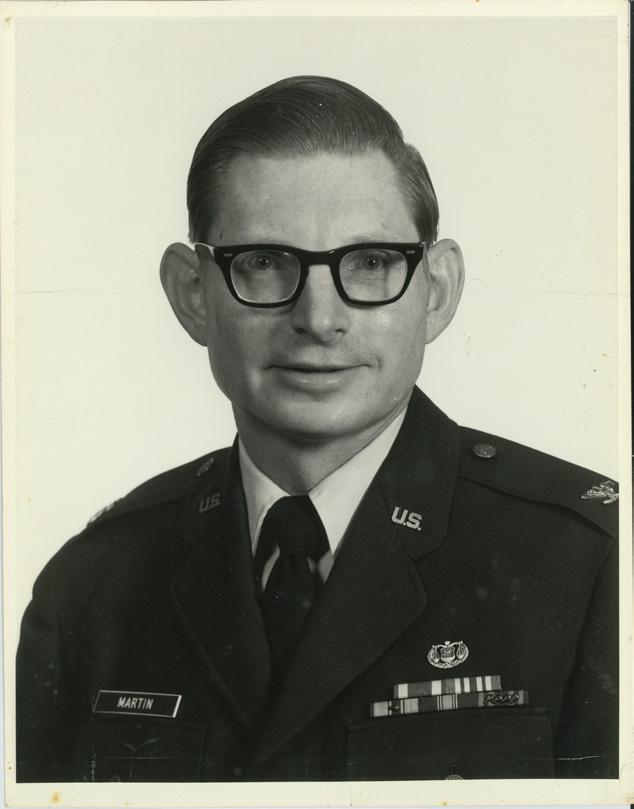
Tribute to Col. William "Bill" Aubert Martin 1931-2022
Bill is survived by his wife of 59 years, Mary Lou Mauderly Martin, three children and five grandchildren.
A devoted family man, Bill was active in his church, Rotary, and the Arkansas Alumni Association. He was beloved by many and dedicated to service of others. Bill attended Warren Public Schools. He graduated from the University of Arkansas School of Law in 1955 with a JD and an Air Force ROTC commission. He was a member of Phi Delta Theta Fraternity. Under an Air Force program he earned an MBA at Arizona State University in 1969.
Bill developed an early interest in photography, becoming photographer for his high school and university newsletters and the Razorbacks
marching band. He exercised by jogging, running his last 5K at the age of 85. Bill's major military assignments included: Chief of Claims and Tort Litigation Division, Headquarters U.S. Air Force; Staff Judge Advocate, Oklahoma City Air Logistics Center; Legal Advisor to Commander, U.S. Forces, Japan and Staff Judge Advocate, Fifth Air Force; and Staff Judge Advocate, Air Training Command. His decorations include the Legion of Merit with one oak leaf cluster, Meritorious Service Medal with two oak leaf clusters, Joint Services Commendation Medal, and Air Force Commendation Medal with one oak leaf cluster. ■
Vol. 57 No. 4/Fall 2022 The Arkansas Lawyer 33 ★ ★ ★ ★ ★ ★ ★ ★ ★ ★ ★ ★ ★ ★ ★ ★ ★ ★ ★ ★ ★ ★ ★ ★ ★ ★ ★ ★ ★ ★ ★ ★ ★ ★
Col. William "Bill" Aubert
ARprobono.org Makes Finding the Right Pro Bono Opportunities Easier
By Keeli Wallace
Finding pro bono and volunteer opportunities for attorneys, law students, and legal professionals in Arkansas is about to get a whole lot easier! Arkansas Access to Justice and The Rose Law Firm have teamed up to connect legal aid providers and attorneys all over the state. The Rose Law Firm has fully funded the first two years of an innovative web-based platform created by Paladin designed to streamline the process of finding pro bono opportunities throughout Arkansas. The site, located at www.ARprobono.org, is scheduled to launch in October of 2022.
Arkansans are severely underserved in many areas of the law, specifically family, probate, and debt cases. Residents living in rural communities and those experiencing poverty are the most affected. Rural counties are disproportionately affected due to a shortage of attorneys in Arkansas. According to the American Bar Association’s 2021 Profile of the Legal Profession, an overwhelming majority of attorneys are located in just a few counties in Northwest and Central Arkansas, with over 3,000 of the state’s 6,808 active attorneys in Pulaski County alone! Some counties have no private practitioners while others have only one or a handful who are rapidly approaching retirement age. ARprobono.org aims to bring legal access to even the most remote counties in Arkansas by connecting the need for pro bono in rural areas with the supply of lawyers in our urban counties.
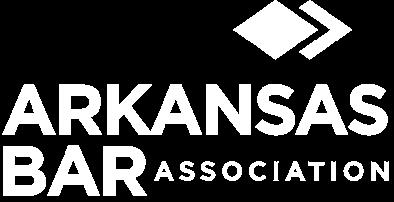
Financial hardship is another barrier for many Arkansans seeking legal advice. A family of four earning $34,687 or less qualifies for legal aid. At that threshold, over 658,000 Arkansans qualify for legal aid. Meanwhile, there are just 59 legal aid attorneys across the state working to serve this community. This means that pro bono work by private practitioners and law students is critical to help to narrow the justice gap. ARprobono.org is a direct
response to the needs of low-income Arkansans.
Students, paralegals, and attorneys will be able to locate pro bono opportunities in a variety of areas, including: family law, probate, record sealing, immigration, civil rights, disability rights, and more. Website users will also have the ability to filter pro bono opportunities by a variety of factors, such as: time commitment, scope of representation (full service or limited scope), location, and legal aid provider. The platform will also facilitate remote service options, such as Zoom clinics, allowing attorneys from anywhere in the state to connect with pro bono clients.
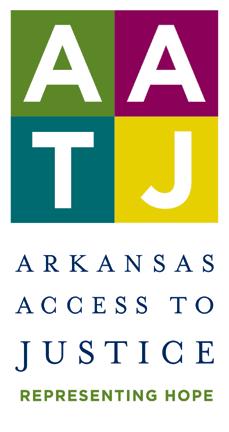

The website will feature volunteer opportunities from many partners, including: The Center for Arkansas Legal Services, Legal Aid of Arkansas, the U.S District Courts for the Eastern and Western Districts of Arkansas, Arkansas Immigrant Defense, Disability Rights Arkansas, the Mock Trial Committee, and AR Free Legal Answers.

We're just getting started! As the platform grows, attorneys, law students, and legal professionals are likely to have even more opportunities to serve Arkansans all over the state. Check out the current opportunities by visiting www.ARprobono.org today. If you are involved with a pro bono organization or a court interested in listing pro bono opportunities, please contact the Arkansas Access to Justice Commission at contact@ arkansasjustice.org or 501.492.7175. ■
Keeli Wallace is a student at the Bowen School of Law. She is interning with the Arkansas Access to Justice Commission where she is helping to launch ARprobono.org and improve language access in the courts.
34 The Arkansas Lawyer www.arkbar.com
Access your work from any where with Clio. Claim your 10% Ark Bar discount at clio.com/arkbar SCAN ME
Preferred IOLTA Banks support justice for all Interest earned on IOLTA accounts funds legal aid Learn more at arkansasjustice org/IOLTA







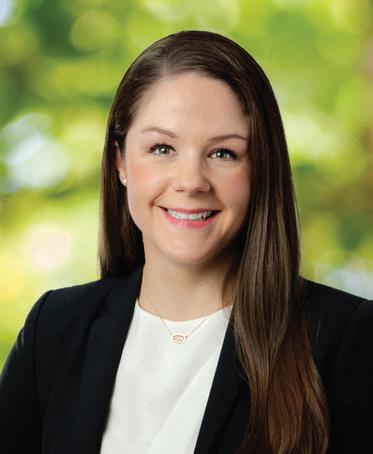
























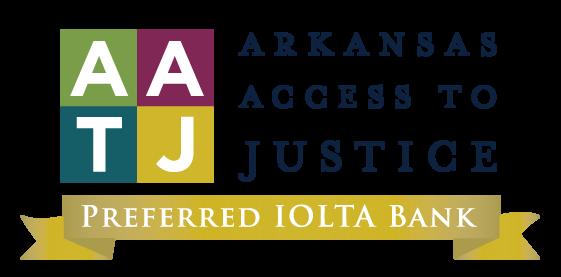
Vol. 57 No. 4/Fall 2022 The Arkansas Lawyer 35
Arkansas Bar Foundation
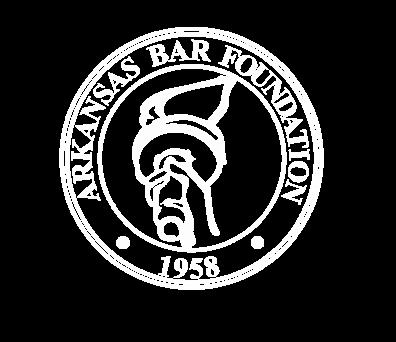
Memorials and Honoraria
The Arkansas Bar Foundation acknowledges with grateful appreciation the receipt of the following memorial, honoraria and scholarship contributions received during the period July 15, 2022 through October 31, 2022.
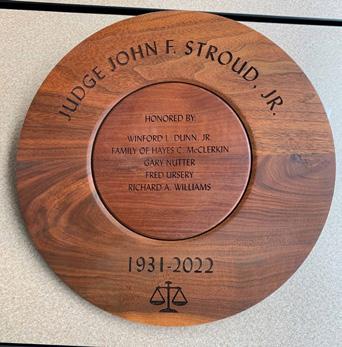
In MeMory of Judge JereMy Bueker Hyden, Miron & Foster, PLLC Rosalind and Kirby Mouser
In MeMory of Margaret CoMpton Hayden and Gordon S. Rather, Jr.
In MeMory of e. C. gIlBreath Judge Robert T. Dawson Rex M. Terry Judge Billy Roy Wilson and Judge Cathi Compton
In MeMory of Judge John earl JennIngs Judy and Glenn Vasser Judge Billy Roy Wilson and Judge Cathi Compton
In MeMory of Chester C. lowe, Jr. Hayden and Gordon S. Rather, Jr. Sharon and Fred Ursery Judge Billy Roy Wilson and Judge Cathi Compton
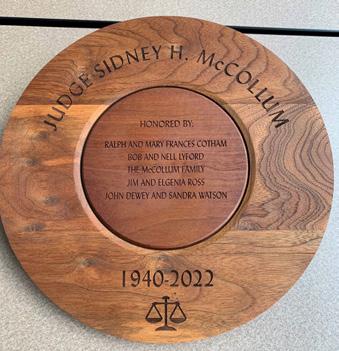
In MeMory of Judge sIdney h. MCColluM Edwina and Jerry Wilson
In MeMory of Col. wM. a. “BIll” MartIn Judge Billy Roy Wilson and Judge Cathi Compton
In MeMory of Col. wM. a. “BIll” MartIn desIgnated to the Col. wM. a. “BIll” MartIn sCholarshIp fund Nancy and Judge John N. Fogleman John P. Gill Donis B. Hamilton Betsy and Cyril Hollingsworth Hyden, Miron & Foster, PLLC Ann and Hoyte Pyle Charles D. Roscopf Brian Rosenthal
Jan and Jim Sprott Rebecca and Tom Tinder Sharon and Fred Ursery Judy and Glenn Vasser
In MeMory of saMuel pIazza Hayden and Gordon Rather


In MeMory of JaMes MIChael shaw Judge Robert T. Dawson Rex M. Terry
In MeMory of Cathy sMIth Judith and Kelley Johnson
Contributions to Arkansas Bar Foundation
Judge Chalk Mitchell
David Powell
Becky and Steve Singleton Frank B. Sewall
arkansas Bar
Judge John f. stroud, Jr. Winford L. Dunn, Jr. Gary Nutter
The Family of Hayes C. McClerkin Fred Ursery Richard A. Williams
Judge sIdney h. MCColluM Ralph and Mary Cotham Bob and Nell Lyford
The Family of Sid McCollum Jim and Elgenia Ross John Dewey and Sandra Watson
36 The Arkansas Lawyer www.arkbar.com 2224 Cottondale Lane, Little Rock, Arkansas 72202 www.arkansasbarfoundation.com • 501.801.5670
foundatIon MeMorIal MedallIons
The Arkansas Bar Foundation is grateful to its Sponsors, guests and Development Committee (Edward Oglesby, Chair, Curtis Hogue, Jamie Jones, Robert Sexton, Danyelle Walker, Teresa Wineland) for a successful fundraiser–Raising the Bar held on September 22, 2022 at the Arkansas Bar Center.
honorarIa, sCholarshIp ContrIButIons and other gIfts
Donor Wall: In Honor of Judge Barbara Halsey The Halsey Family: Jerry, Cheri, Taylor, and Olivia
E. C. Gilbreath of Fort Smith died August 27, 2022, at the age of 88. He attended the University of Arkansas and graduated with a B.S.B.A in Accounting in 1956. After college, he passed the CPA exam, and for two years he worked for a national accounting firm in Houston, Texas, before returning to the University of Arkansas to enroll in law school. He received the E. L. Cullum Foundation award for being the first UA student to become both a certified public accountant and to be admitted to the bar. While in college, he participated in ROTC and upon graduation was commissioned as a Second Lieutenant in the U.S. Army. In 1958 59, he served active duty in Karlsruhe, Germany, where he was a Field Artillery Officer. During his 59-year career in law, he practiced in 33 states. He specialized in product liability lawsuits involving automobiles and firearms.



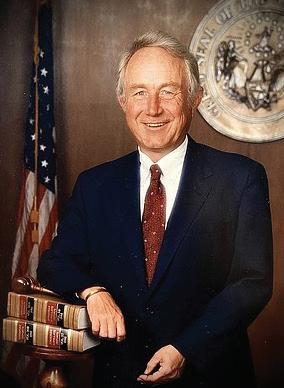




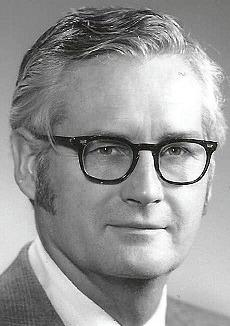
Judge John Earl Jennings of Rogers died on August 25, 2022, at the age of 76. John attended the University of Arkansas, receiving a B.A. in Chemistry in 1969 and a law degree in 1972. He was the Managing Editor of the Arkansas Law Review. John practiced Law in Rogers with Eugene T. Kelley and James M. Luffman in the 1970s. He was appointed by Governor Dale Bumpers to serve as RURESA attorney for Benton, Washington, Carroll, and Madison Counties from 1976 1979. In 1979, he served as the Rogers Municipal Judge and continued until 1983, when he was elected Circuit-Chancery Judge for Benton and Carroll Counties. In 1986, he was elected to the Arkansas Court of Appeals, where he served 16 years, serving as the court's Chief Judge from 1993 to 1997, and retiring from the appellate court in 2002. Beginning in 2003, he worked as a mediator with ADR in Little Rock for 15 years, while also serving as Special Master of the Arkansas Supreme Court and as Special Circuit Judge.
Chester Clarence Lowe, Jr., of Little Rock, died October 24, 2022, at the age of 83. Chester was a graduate of Little Rock Central High School and the University of Arkansas. Following active military service in the U..S. Army as Lieutenant, Infantry, First Cavalry Division stationed in Korea, he attended law school at the University of Arkansas where he was on Law Review. He continued in the U.S. Army reserves and retired as a captain in 1969. Chester practiced law for 56 years.
James Michael Shaw of Fort Smith died in July 6, 2022. He graduated from the University of Arkansas with a B.S.B.A degree, attended George Washington University in Washington, D.C. and the University of Arkansas School of Law. He received his J.D. degree from Arkansas in 1959. He was active in the practice of law in Fort Smith for over 50 years. He served as a Special Justice to the Arkansas Supreme Court and was a State Board Law Examiner for several years.
Judge Ralph Cavin Williams of Bella Vista died March 23, 2022, at the age of 81. He graduated from Terrell High School and later attended college at Texas A&M, graduating with a Law Degree at the University of Arkansas. He started practicing law in Benton County in September of 1965. He became Bentonville Municipal Judge in 1969 until 1974, when he returned to his local law practice on The Bentonville Square. Ralph continued practicing law full time until his death in March of 2022. Ralph devoted over 56 years to practicing law in Benton County.
The information contained herein is provided from the members' obituaries.
Vol. 57 No. 4/Fall 2022 The Arkansas Lawyer 37
in memoriam Looking for an article in The Arkansas Lawyer? HeinOnline lets you view, search, print and download any article or issue going back to 1967. Access it as a member on arkbar.com. It's a FREE member benefit! https://qrco.de/bdTD7D Inside: Arkansas Stare Decisis Arkansas Constitution Arkansas New Uniform Laws Arkansas Supreme Court Rule XIV A publication of the Arkansas Bar Association Vol. 57, No. 1, Winter 2022Lawyer The Arkansas ArkBar offers free job postings for employers. https://qrco.de/bdU3ch
ArkBar's Statement of Ownership for USPS is printed here. PS Form 3526 is required by the Post Office annually to show proof of continued eligibility for mailing under a Periodical Permit.


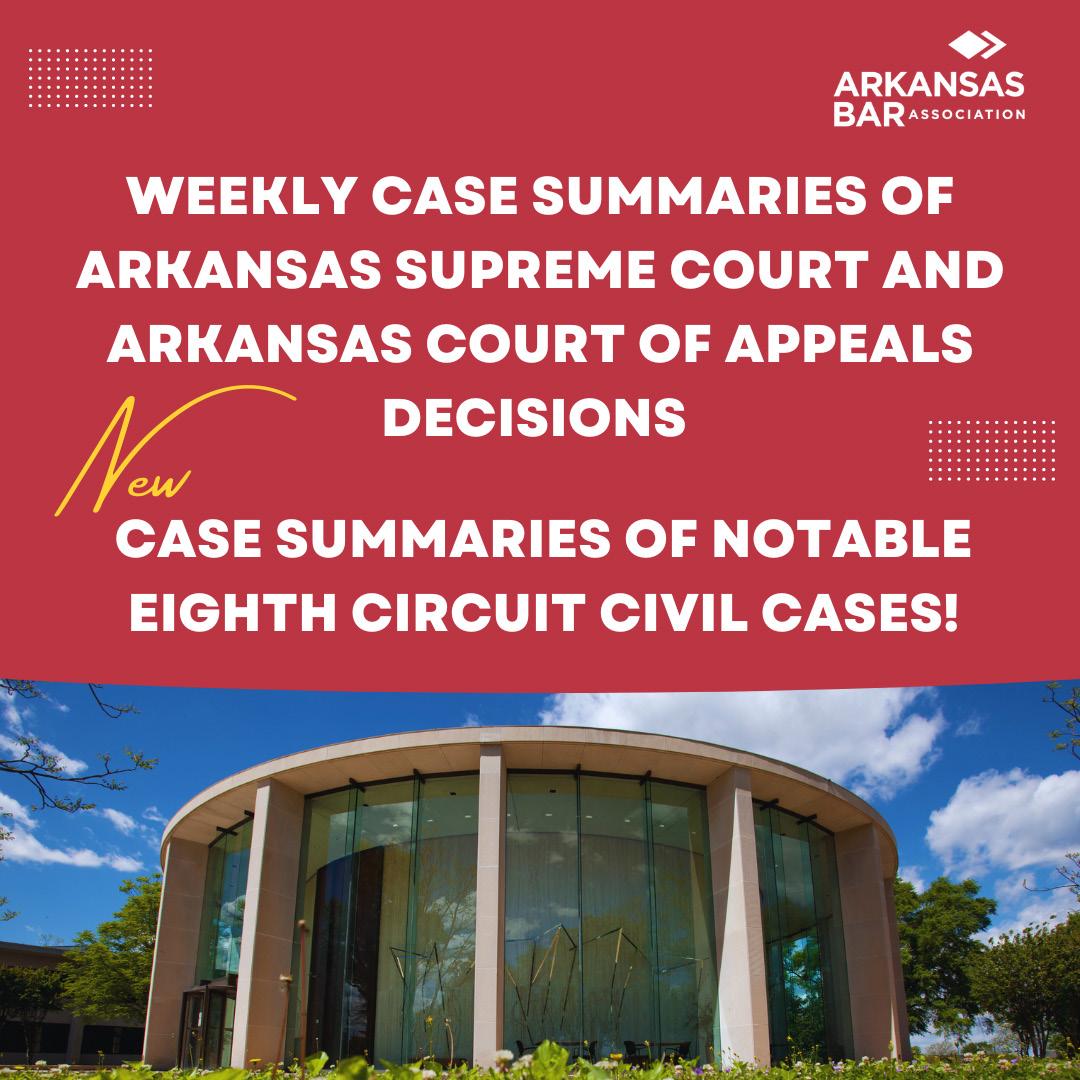
38 The Arkansas Lawyer www.arkbar.com TSCHIEMER LEGAL BRIEFING Handling all your briefing needs Robert Tschiemer is the author of the Arkansas Bar Weekly Case Summaries, available at www.arkbar.com. For a complete list of decisions see www.tschiemerlegalbriefing.com Robert S. Tschiemer Ark. Bar 84148 P.O. Box 549 Mayflower, AR 72106-0549 501.951.3303 (p) 501. 377.9866 (f) robert@tschiemerlegalbriefing.com www.tschiemerlegalbriefing.com From
Circuits
4.Issue Frequency 5.Number of Issues Published Annually Managing Editor (Name and complete mailing address) Known Bondholders, Mortgagees, and Other Security Holders Owning or Holding Percent or More of Total Amount of Bonds, Mortgag PS Form 3526 July 2014 [Page of (see instructions page 4)] PSN: 7530-01-000-9931 PRIVACY NOTICE: See our privacy policy on 7.Complete Mailing Address of Known Office Publication (Not printer) (Street, city, county, state, and ZIP+ Telephone (Include area code) Complete Mailing Address Statement of Ownership, Management, and Circulation (All Periodicals Publications Except Requester Publications) 12.Tax Status (For completion by nonprofit organizations authorized to mail nonprofit rates) (Check one) Has Changed During Preceding 12 Months (Publisher must submit explanation of change with this statement) The purpose, function, and nonprofit status of this organization and the exempt status for federal income tax purposes: The Arkansas Lawyer Quarterly 2224 Cottondale Lane, Little Rock, AR 72202 501-375-4606 Arkansas Bar Association 2224 Cottondale Lane, Little Rock, AR 72202 2224 Cottondale Lane, Little Rock, AR 72202 4 Same 2224 Cottondale Lane, Little Rock, AR 72202 PS Form 3526, (Page 2 of 4) Circulation (By Mail (By Mail and a.Total Number of Copies (Net press run) Mailed Outside-County Paid Subscriptions Stated on PS Form 3541 (Include paid distribution above nominal rate, advertiser’s proof copies, and exchange copies) (1) Paid Distribution by Other Classes of Mail Through the USPS Street Vendors, Counter Sales, and Other Paid Distribution Outside USPS (3) Free or Nominal Rate Copies Mailed at Other Classes Through the USPS (e.g., First-Class Mail) (3) [Sum of 15b (1), (2), (3), and (4)] Total Free or Nominal Rate Distribution (Sum of 15d (1), (2), (3) and (4)) Copies not Distributed (See Instructions to Publishers #4 (page #3)) (15c divided by 15f times 100) *If you are claiming electronic copies, go to line 16 on page 3. you are not claiming electronic copies, skip to line 17 on page 3. The Arkansas Lawyer 16,645 3880 808 2263 559 1562 0 0 0 0 0 0 0 0 367 3825 5 57 1417 3882 100 100 3526, Statement of Ownership, Management, and Circulation (All Periodicals Publications Except Requester Publications) 16.Electronic Copy Circulation certify that 50% all my distributed copies (electronic and print) are paid above nominal price. certify that all information furnished on this form true and complete. understand that anyone who furnishes false or misleading information on this form who omits material or information requested on the form may be subject to criminal sanctions (including fines and imprisonment) and/or civil sanctions (including civil penalties). 18.Signature and Title Editor, Publisher, Business Manager, Owner If the publication is general publication, publication of this statement required. Will be printed Publication of Statement Ownership Publication not required. Total Paid Print Copies (Line 15c) Paid Electronic Copies (Line 16a) Percent Paid (Both Print & Electronic Copies) (16b divided by 16c 100) PRIVACY NOTICE: See our privacy policy on 0 1367 0 100 100 in the ___________ issue of this publication.
the ordinary to the most complex, no appeal is too small or large Writing Briefs to the Arkansas Court of Appeals, the Arkansas Supreme Court, the Federal
and the United States Supreme Court
Receive your quick preview early! Join the ArkBar Case Summaries community on ACE to see the mini-case summaries provided the same week of decision. Visit the ArkBar Case Summaries Community and click "Join Community."
Attorney Disciplinary Actions
Final actions from July 1, 2022 –September 30, 2022, by the Committee on Professional Conduct. Summaries prepared by the Office of Professional Conduct (OPC). Full text documents are available online through the Judiciary website by checking under “Opinions and Disciplinary Decisions” using the following link: https://www.arcourts.gov/professionalconduct/opinions. [The “Model” Rules of Professional Conduct are for conduct prior to May 1, 2005. The “Arkansas” Rules are in effect from May 1, 2005.]

REFERRED TO DISBARMENT:
KNIGHT, KENNETH VAUGHN, of Fayetteville, ABN: 2002097, in Committee Case No. CPC-2022-010, on a complaint by his former client, Tom Muccio, for violations of AR Rules 1.1, 1.3, 1.4(a)(3), 1.15(a)(5), 1.15(a)(6), 8.1(a), 8.4(c), and 8.4(d), was referred on September 19, 2022, to disbarment proceedings to be initiated by OPC if Knight does not first surrender his law license.
MAY, QUENTIN ELLERY, of Little Rock, ABN: 2006034, in Committee Case No. CPC-2022-019, on a complaint by his former client, Hayley Ford, for violations of AR Rules 1.4(a)(3), 1.15(a)(5), 8.1(b), and 8.4(c), was referred on September 16, 2022, to disbarment proceedings to be initiated by OPC if May does not first surrender his law license.
INTERIM SUSPENSION:
McKAY, MATTHEW PORTER, of Little Rock, ABN: 2007146, in Committee Case No. CPC-2022-029, on a petition
At Public Notice Agency, we have one important mission: place all legal notices for firms like yours, saving you money and time while ensuring accuracy.
Our team uses innovative technology to place your notices in qualified newspapers. We confirm scheduled publication, manage accounting, and provide you with proofs along with one invoice.
INTERESTED? EMAIL US! INFO@PUBLICNOTICEAGENCY.COM OR BY PHONE (501) 823-9002
before the Committee, by Order of Interim Suspension issued September 20, 2022, was placed on Interim Suspension for allegations that McKay abandoned his law practice and posed a substantial threat of serious harm to the public and to his clients.
LITTLEJOHN, DAVID M., of Little Rock, ABN: 2008039, in Committee Case No. CPC-2022-027, on a petition before the Committee, by Order of Interim Suspension issued September 19, 2022, was placed on Interim Suspension for allegations of serious misconduct involving criminal activity.
KNIGHT, KENNETH VAUGHN, of Fayetteville, ABN: 2002097, in Committee Case No. CPC-2022-010, on a complaint by his former client, Tom Muccio, by Order of Interim Suspension issued September 19, 2022, was placed on Interim Suspension, pending the initiation of disbarment proceedings, for allegations of serious

misconduct involving conversion of client IOLTA funds. Knight also failed to respond to the formal complaint.
MAY, QUENTIN ELLERY, of Little Rock, ABN: 2006034, in Committee Case No. CPC-2022-019, on a complaint by his former client, Hayley Ford, by Order of Interim Suspension issued September 16, 2022, was placed on Interim Suspension, pending the initiation of disbarment proceedings, for allegations of serious misconduct involving conversion of client IOLTA funds. May also failed to respond to the formal complaint.
NOBLES, JOSHUA GARRETT, of Clarksville, ABN: 2004217, in Committee Case No. CPC-2022-023, on a petition before the Committee, by Order of Interim Suspension issued July 15, 2022, was placed on Interim Suspension for allegations that Nobles abandoned his law practice and posed a substantial threat of serious harm to the public and to his clients. ■
Vol. 57 No. 4/Fall 2022 The Arkansas Lawyer 39

2023 Open Enrollment
has begun
Visit the ArkBar Insurance Marketplace to shop the best pricing on plans from industry-leading carriers. You can also schedule an appointment to have a benefits counselor assess your needs, discuss your options, and determine potential savings from subsidies. Remember, if you need coverage with an effective date of Jan. 1, 2023 you must enroll by Dec. 15, 2022.

Products sold and serviced by Business Planning Concepts, Inc dba Member Benefits, the program administrator. The Arkansas Bar Association is not a licensed insurance entity and does not sell insurance. INSURANCE MARKETPLACE ADMINISTERED BY: memberbenefits.com/arkbar 800-282-8626
.
for individual health insurance

MID YEAR THE ALOFT HOTEL 716 RAHLING RD. LITTLE ROCK FEBRUARY 8-10, 2023 ELEVATE YOUR PRACTICE WITH THE TRANSACTION TRIO TRACKS PRICING BY DAY/MULTI-DAY SAVINGS ARKBAR.COM/MIDYEAR 2.0 F EBRUARY 8 TAX LAW F EBRUARY 9 PROBATE & TRUST F EBRUARY 10 ELDER LAW CELEBRATING 125 1898-202 3 FEBRUARY 8-10,2023!























































































































































































































































